
BECOMING, BEING, AND STAYING A CIRCULAR LEADER IN EUROPE

In Fryslân we do things a little differently



BECOMING, BEING, AND STAYING A CIRCULAR LEADER IN EUROPE

In Fryslân we do things a little differently

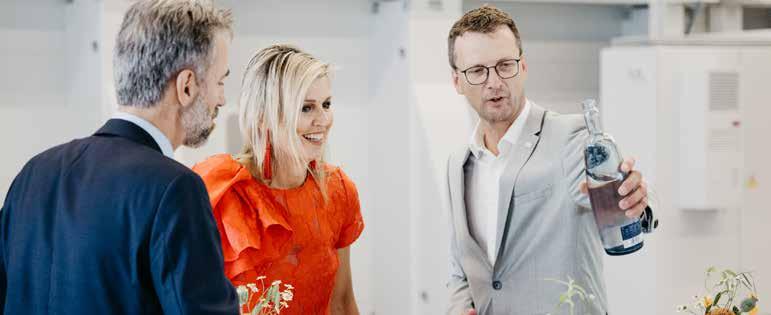
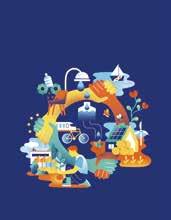
The cover illustration by Berber van den Brink from Leeuwarden depicts connection and circularity.
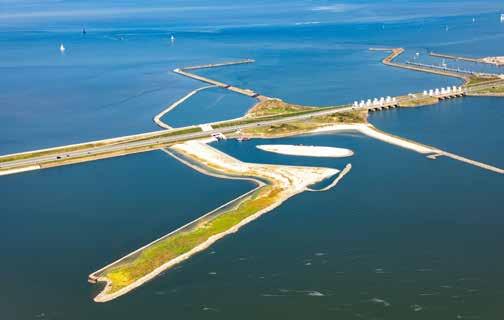
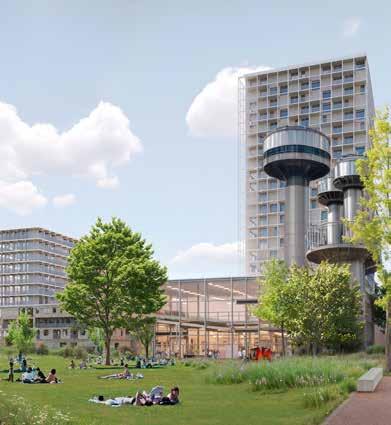
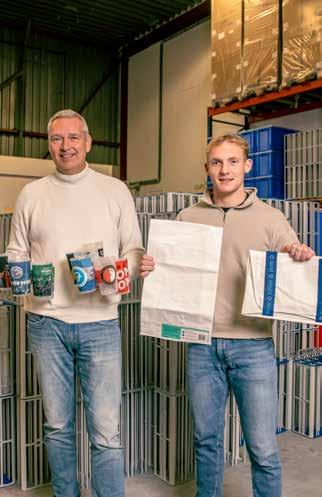
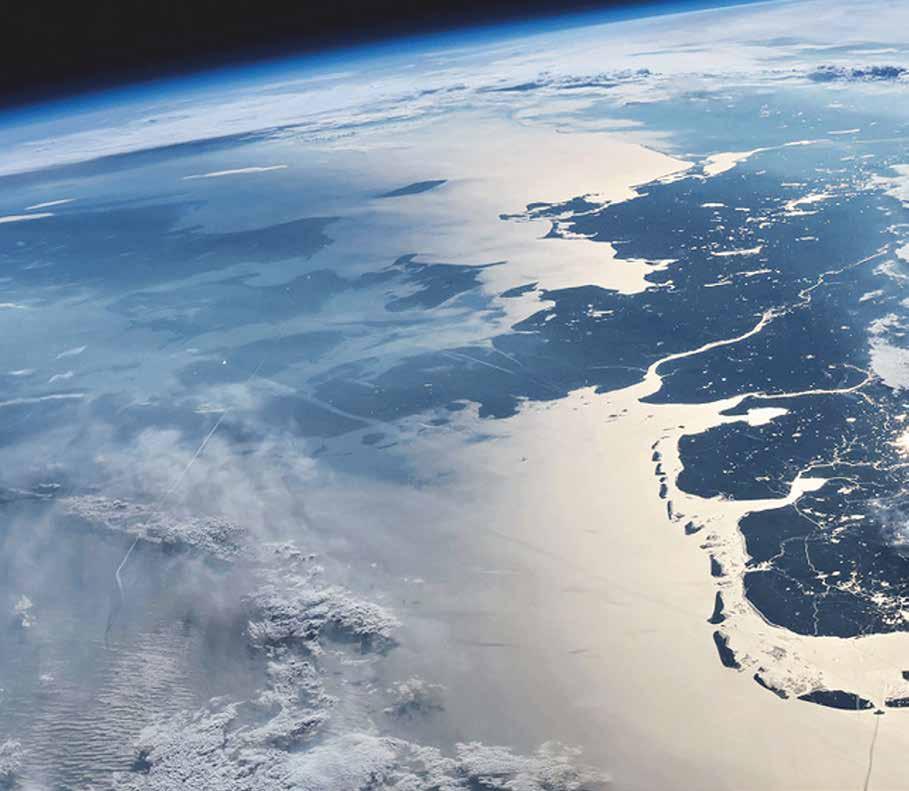
FRISIANS ARE THE HAPPIEST INHABITANTS OF EUROPE AND WE WANT TO KEEP THAT LEAD! WITH THE BLUE DELTA ECONOMIC COOPERATION AGENDA, ALL OF US TOGETHER ENSURE THAT FRIESLAND REMAINS A VITAL REGION. A REGION WHERE IT’S GREAT TO LIVE, DO BUSINESS, AND STUDY.
With the Blue Delta Economic Cooperation Agenda, Frisian entrepreneurs, educational institutions, and public bodies are shaping Friesland's future together. We’re not going for more, we’re going for better. How? By linking social responsibilities to economic opportunities, we strengthen the region's broad prosperity and maintain our position as the circular leader of Europe. Together, we are building a clean, healthy, and happy Friesland.
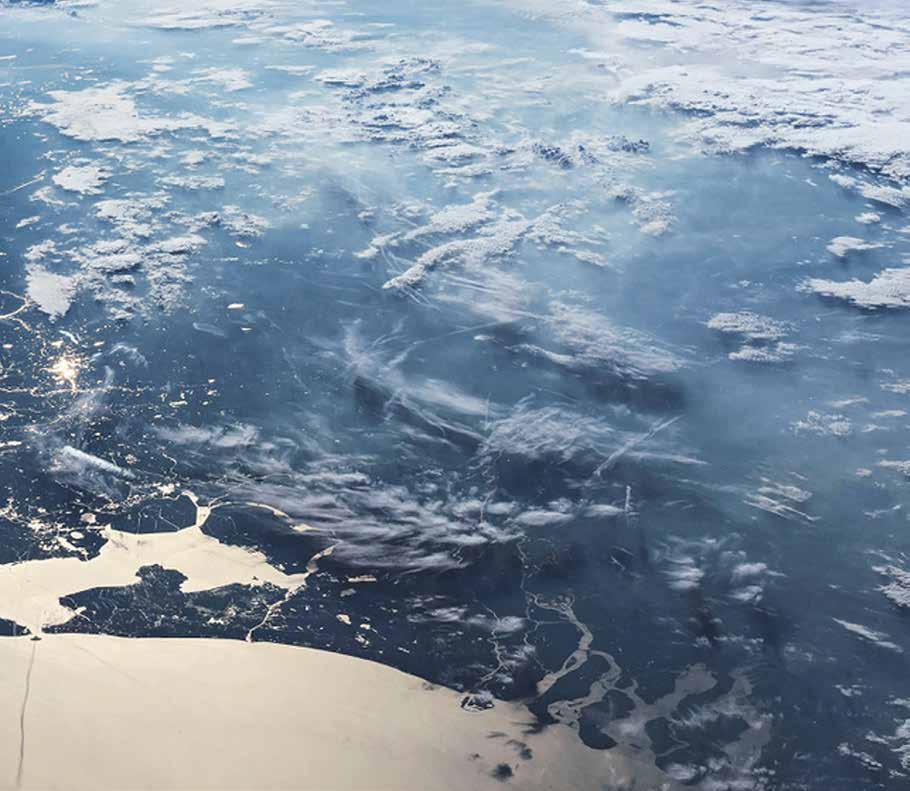
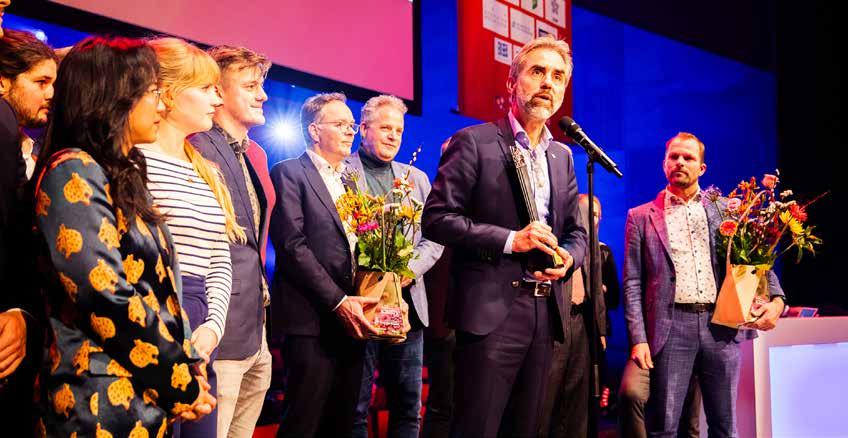
This is how we work together in Friesland
A clean, healthy, and happy Friesland. A region with a future-proof economy that reuses raw materials over and over again, so that waste no longer exists. A circular Friesland! Something futuristic? No, it's here right now because Friesland is one of Europe's circular frontrunners.
Friesland has been working on circularity for ten years by now. A decade ago, a group of ambitious Frisian companies started Vereniging Circulair Friesland. Now, ten years on, they have a network comprising more than 180 circular frontrunners in business, education, public bodies, and civil-society organisations. Organisations that dare to pursue their circular ambitions, that connect with other organisations, that put their shoulders to the wheel together and jump in at the deep end.
Meeting up, facing a challenge together, getting to work: it is a way of working that is part of our DNA and our mentality. A lone Frisian could not have won the battle against the water but together we did. It is no coincidence that the proverb ‘It is mei sizzen net te dwaan’ can be found on a tile in many Frisian households. It means that our actions speak louder than words! By taking action and working together, you can make a difference.
That is exactly how we have been working towards a healthy, future-proof, and circular Friesland since 2015. Vereniging Circulair Friesland acts as a leader, connector, and director in the transition. The members form an inexhaustible source of ambition and determination. The collective power of innovation serves as a catalyst that inspires the entire group. When you create that combination, things move fast. Especially in Friesland, where we know each other and only want the best for each other and where we have enough leadership to make a difference. Our collaboration model is proving to be scalable and applicable to other regions. The recently founded and rapidly developing association Circulair Groningen Drenthe is a good example. Together with this association, we are accelerating the circular transition in the Northern Netherlands.
CELEBRATING SUCCESSES AND LOOKING FORWARD
This transition is founded on seven pillars that create a good balance between economic, environmental, and sociological aspects. The seven pillars are reusing materials, energy, water, biodiversity, social inclusiveness and cultural diversity, health and wellbeing, and added value. The pillars are applied integrally to specific projects and programmes that are always centred on chain collaboration. This approach is already producing remarkable successes.
Our ambition extends beyond Friesland, the Northern Netherlands, or the Netherlands as a whole. We aim to introduce the whole of Europe to the Frisian approach with a solid network in Europe. Together with other circular regions, we carry out projects across Europe, organise events, and participate in various committees. This is how we put ourselves and circularity on the European map. Friesland is now recognised in Europe as one of the circular frontrunners. We are actually referred to as a model region for a circular economy!
In 2025, we will celebrate our circular successes by showing what we have achieved together already. By showcasing what has been 'made circular in Fryslân' and by showing our pride in our achievements! More importantly, we will look ahead because we will continue building a clean, healthy, and happy Friesland. We will scale up to more and larger projects and programmes, and we will make specific proposals to amend legislation and regulations that impede the circular transition. Of course we will do that together. Our collective circular journey to tomorrow is moving a step further every day. Will you join us?
In 2025, we will celebrate our circular successes. We will show you what we have achieved together, what is already 'made circular in Fryslân', and we will not hide our pride. We are organising interesting events and activities throughout the year.
Would you like to know what else there is to do in 2025?
Visit www.madecirculairinfryslan.frl

17 March | OPNIEUW! in Buitenpost
The official kick-off of our anniversary year will take place on Monday 17 March. The National Week of the Circular Economy starts on the same day, making it a double celebration! During the grand opening, we will proudly showcase what we’ve achieved already and we will share our ambitions for the future. See the programme on www.madecirculairinfryslan.frl
19 March | throughout the province of Friesland
Conference delegates are invited to arrive in Leeuwarden a day before the National Circular Economy Conference to discover for themselves why Friesland presents itself as a European frontrunner. We are organising five different tours to several circular locations in the region. In the evening, there will be a circular dinner with top Frisian chefs and a cultural dessert by Arcadia: this is how to taste Friesland at its best!

20 March | Leeuwarden
Every year the Ministry of Infrastructure and Water Management organises The National Circular Economy Conference (NCCE). The city of Leeuwarden is the proud host this year. You can read more about the NCCE in Leeuwarden on page 53.
Every first Tuesday of the month | Friesland
On the first Tuesday of every month, our members provide a glimpse of their circular organisation or institution. Each month focuses on a different pillar of the circular economy. Are you interested in what Frisian organisations are doing in relation to water, cultural diversity, health and wellbeing, or any of the other topics? Then register for the Iepen Hûs at www.madecirculairinfryslan.frl
On request | Friesland
An awful lot is happening in Friesland in relation to the circular economy and we'd love to show you! Therefore, we organise circular expeditions for interested organisations. For example, to circular construction, green teams, or circular hubs. Needless to say that each expedition is concluded with delicious, local food because that is something else we are good at! Book your circular expedition now at www.meetinfriesland.nl/circulair
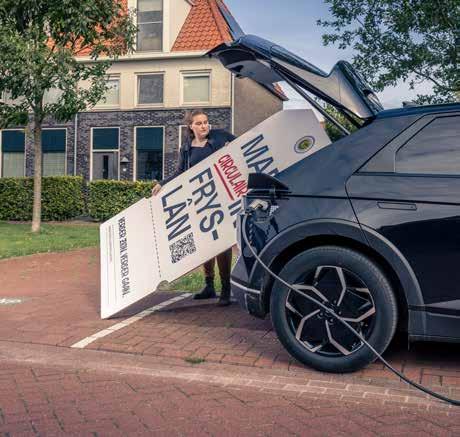
10 - 12 June | Friesland
Friesland is dedicated to the circular economy for an entire week. During the European summit from 10 to 12 June, several European networks will come to our province to strengthen international collaboration. We will be proud to show you why Friesland is one of the European frontrunners.
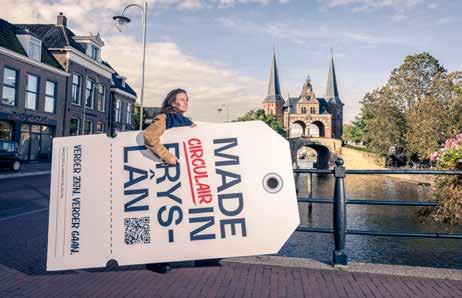
10 October | Friesland
We will conclude the anniversary year 2025 together on World Sustainability Day. We will look back on a wonderful year, but above all we will look ahead. What opportunities do we see? How do we tackle them head on? The circular transition continues! You can find the complete programme on www.madecirculairinfryslan.frl.
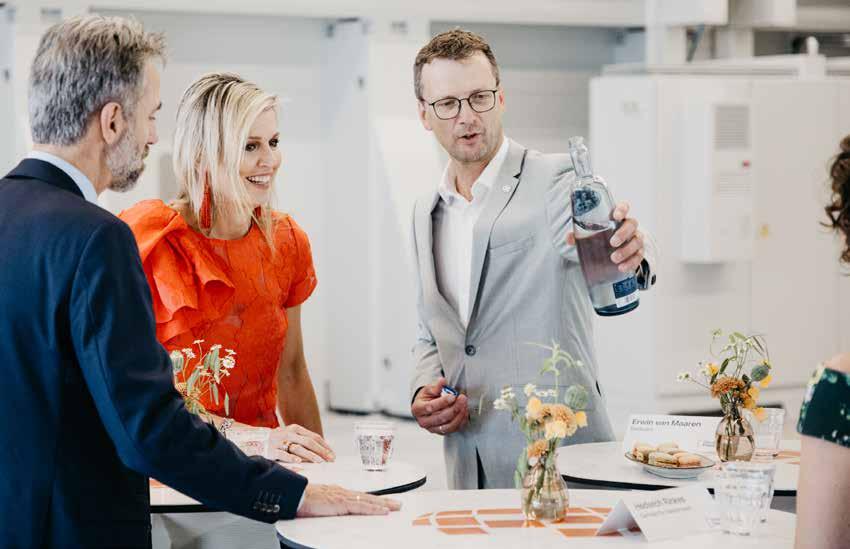
An association in which entrepreneurs, public bodies, educational institutions, and civil-society organisations work together on a circular economy is what interested Her Majesty Queen Máxima of the Netherlands. In the summer of 2024, the Queen visited Circulair Friesland to learn more. With great pride, we showed her the innovative collaboration and initiatives of Frisian trailblazers making a difference in Friesland.
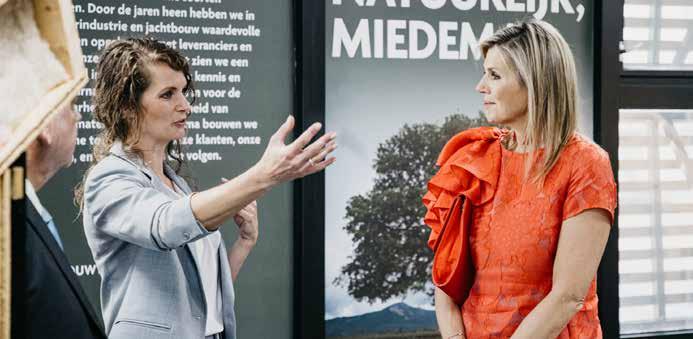
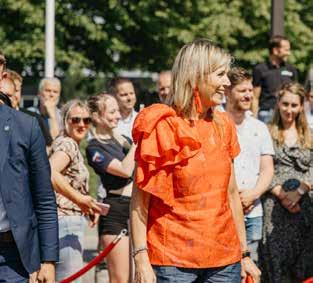

Queen Máxima's visit started in Heerenveen, where she saw how residual waste is converted into green gas at waste management organisation Omrin, and how circular industrial estates contribute to the reuse of raw materials. At the National Circular Plastics Test Centre (NTCP), the Queen was given an insight into the latest innovative technologies for improving plastics recycling. Nedcam Solutions demonstrated how it uses a giant 3D printer to produce circular plastic moulds for the maritime industry and the construction sector. Finally, Máxima visited Miedema Bouwmaterialen in Leeuwarden, which puts biobased construction and circular commissioning at the heart of all its activities.
The Queen's visit underlined Friesland's leading role in the transition to a circular economy. After her visit, Queen Máxima expressed that she was impressed by the developments in the province. "We only have one planet, and our resources are not inexhaustible. The more that is reused, the better it is. It’s really great to see how Friesland works on this."
FRISO DOUWSTRA AND EVERT JAN VAN NIJEN
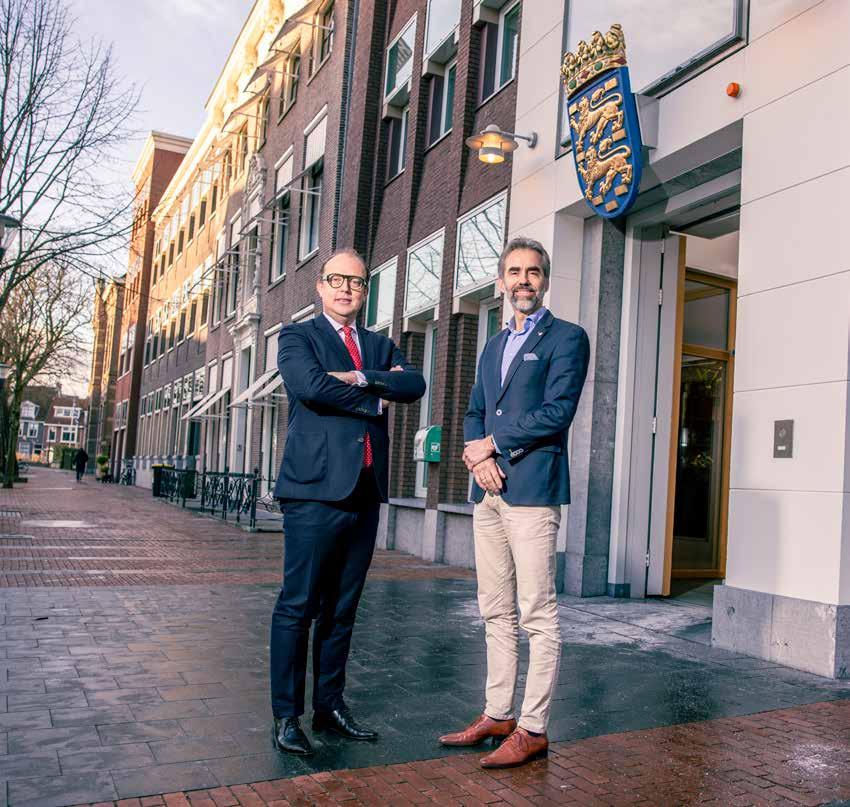
In 2025, Friesland will show just how far it has come already in the circular transition as a region. A well-deserved spotlight, according to Friso Douwstra, member of Provincial Executive of Fryslân, and Evert Jan van Nijen, Director of Vereniging Circulair Friesland. Everyone should know that the province is on a firm circular course. "But 2025 is not a final destination, it's a stopover,”
Frisian farmers are on a waiting list for growing hemp or flax for biobased construction materials. A test centre for circular plastics in Heerenveen, the world's first Fish Migration River on the Afsluitdijk, and SMEs working passionately on circular products. As Friso Douwstra and Evert Jan van Nijen sit opposite each other, the examples of circular successes in the region are coming thick and fast.
It is beyond doubt that the province of Friesland is recognised as one of the European frontrunners in the circular economy, they say. Friso, who is active in European politics and who holds a Circular Economy portfolio, sees how many of his European colleagues are still struggling with the basic principles of sustainability. "They are thinking about starting on waste separation, while we’ve been extracting and recycling lots of raw materials from waste for a long time," he illustrates. "Friesland is a relatively small area. We have a strong SME sector, but there are no big businesses with hundreds of millions of innovation power every year. Yet we have plenty of knowledge on the circular economy."

"Knowledge and solid implementation programmes," Evert Jan adds to his partner's words. "Companies, educational institutions, and public bodies all roll up their sleeves together. This way of cooperating in Friesland and the Northern Netherlands is quite unique. In recent years, hundreds of millions have been invested in the circular economy with support from the provincial executive." But Friesland is not the only European region going through a circular transition. It’s also happening in Flanders, Scotland, and parts of Finland, for example. These frontrunner regions are increasingly able to find each other, notes the association's director. "We cooperate in international projects. Sometimes this is done as a joint 'leading group', but we also help other regions to accelerate their transition."
In 2025, the province of Friesland is putting itself in the circular spotlight. A little un-Frisian perhaps, to step into the spotlight with such pride? Not really, Friso believes. In fact, he thinks the attention is much-needed. "All the organisations, authorities, and people who have been working for a futureproof Friesland for so long really deserve a pat on the back, this recognition. Besides, with the spotlight we also increase awareness of the cause. That brings new energy and creates new traction. The spotlight takes us further."
The festive anniversary year also builds confidence, Evert Jan believes. "Confidence in our own region. If we are reminded of the steps that have already been taken, we can’t help but realise that we are the ones at the forefront of the circular transition. Because this transition is taking place right here, it brings us much more than environmental gains, it benefits the regional economy and social cohesion too."
The circular train keeps rolling on The deputy representative and director are looking forward to the exciting year ahead. Yet their sights at set beyond 2025. The circular train keeps rolling and at a brisk pace at that. "2025 is not a final destination, but a stopover,” Evert Jan keeps returning to the metaphor. If it were up to him, the train would continue full speed ahead towards a future-proof Frisian economy. "I would be delighted if the Frisian authorities could achieve their aim of producing 100% circular products by 2030 and drive the circular ambitions of local and other SMEs. If all the newbuild houses in Friesland would have a biobased construction. If half of the region's business estates would be circular by then, that would be an enormous boost to the circular transition." Finally, he holds great ambitions for education: "If Frisian education is completely sustainable and circular by 2030, circularity will become the norm for students. That would empower a new generation to accelerate the transition even further."
Made circular in Friesland Friso is not planning to rest on his laurels. He reveals his strong commitment to anchoring the Frisian leadership position in Europe. "If it's about the circular transition in Europe, it should be about Friesland. About our approach, our projects, and our results." And closer to home? "We have created a wonderful, visibly Frisian, circular chain with biobased construction. I’m sure we can achieve the same with different production streams, so that we can involve more SMEs and further the transition. Imagine if the gifts I receive as a Provincial Executive member were no longer made in China but made circularly in Friesland: that's a wonderful vision of the future, don't you think? Let's live up to that together."
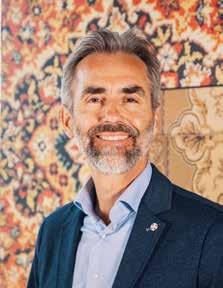
‘The new generation can accelerate the transition even further’
A circular economy is something you create together. We are proud of the collaboration with all our indispensable partners, and we will turn the circular year into a resounding success. Together, we can reach businesses, residents, and visitors to Friesland.
The Innovation Pact Friesland (IPF) is a partnership of entrepreneurs, educational institutions, and public bodies. Together, they are implementing programmes from the Blue Delta Economic Cooperation Agenda. Circularity and sustainability play an important role in all programmes associated with the IPF. Of course, the organisation itself also uses the most circular working methods possible. www.innovatiepact.frl
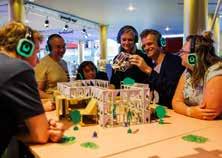
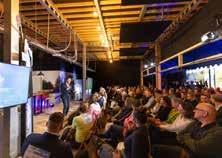
Every three years, Arcadia organises a 100-day cultural programme in Friesland. This year will see another explosion of creativity from 17 May to 24 August 2025. For example, an innovative 'Bouwurk' (construction work) is made of sustainable materials and creative building blocks at the Oldehove in Leeuwarden. Anyone can contribute to this centre for encounters, wonder, and creativity. www.arcadia.frl
Friesland Convention Partners and Meet in Friesland, part of Merk Fryslân, have a common objective: to attract more business meetings to the region. Their aim is to position Friesland as the place where knowledge, innovation, sustainability, and experience reinforce each other. In 2025, Merk Fryslân and Circulair Friesland will jointly offer the ingredients and expeditions to inspire as many companies as possible to join the circular transition. www.meetinfriesland.nl
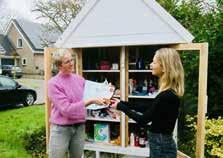
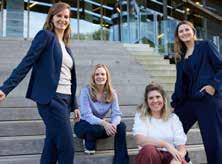
The Friese Milieu Federatie (FMF) helps residents of Friesland to use things more sustainably by demonstrating that sharing, borrowing, swapping, and repairing is easy and attractive. FMF shows that a circular society - where you buy less, use things longer, and choose smartly - is good for the environment, saves costs, and makes neighbourhoods stronger.
www.fmf.frl
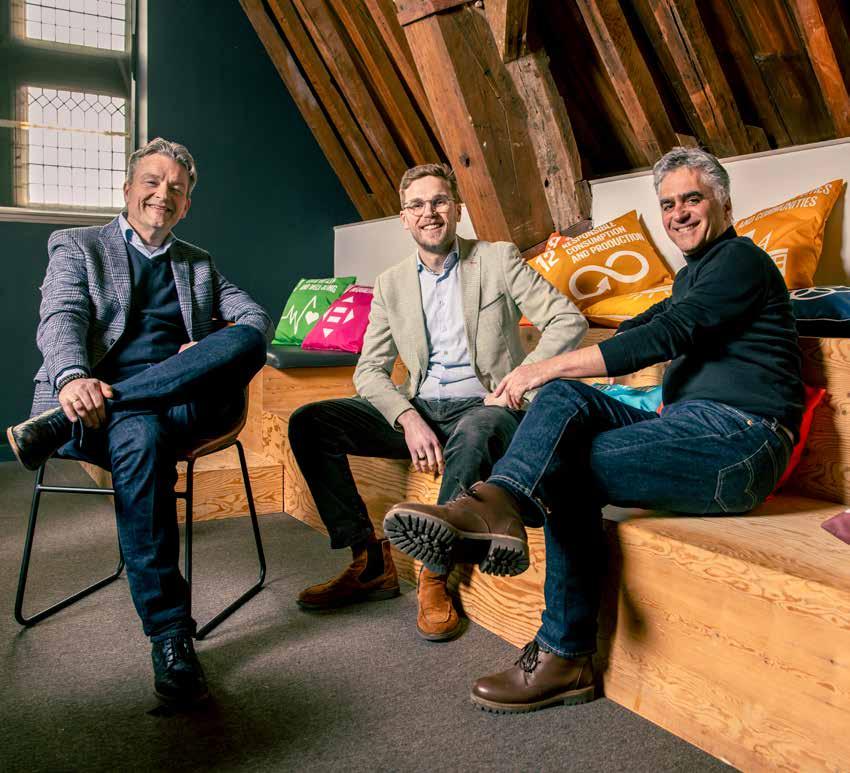
You can’t achieve a circular turnaround on your own. No, to initiate a transition to circular and biobased buildings in the construction sector, good collaboration is essential. Peter van de Weg, Managing Director of housing association Elkien, and Doeke van Wieren, Director of TWA Architects and affiliated to CRAFT+ are well aware of this.
The new normal. No turning back. When Peter, Doeke and Nick start talking to each other, it doesn't take long before statements like these crop up. The three men all represent a link in the chain of circular and biobased construction. "Pioneers like Elkien and architectural collective CRAFT+ demonstrate that sustainable construction is no longer the future; it's already here. It is possible! And it doesn't have to be more expensive, as long as you keep innovating," says Nick Boersma, Programme Manager Friesland Builds Circular (Fryslân bouwt Circulair). "Thanks to that attitude, Friesland already has 40 circular and biobased construction projects."
Elkien is the client of several of those construction projects. The housing association believes that social housing should be affordable and futureproof. That means building with natural materials and storing rather than emitting CO2. Insulating homes with hemp, reusing concrete, or giving wood a second life. "We see it as a transition to the future," says Peter. "You need scale for that. Numbers. Collaboration. That’s why Elkien collaborates with other housing associations. If you scale up and create a market, you create a solid chain."
The renewal in the Heechterp neighbourhood proves the same, the director continues. "In that project the concrete that is released by the demolition is processed into new construction materials that are reused in the same neighbourhood. We work closely together with local players, such as the Leeuwarder Betoncentrale (Leeuwarden Concrete Plant) and the municipality of Leeuwarden. Local, circular, and efficient. In the village of Oppenhuizen, Bouwgroep Dijkstra Draisma built their most sustainable homes to date in 2024. With the slogan: “Concrete where you have to, wood where you can."
You can achieve more together as they say, and that is so true. "Circulair Friesland is incredibly important in organising collaboration in the construction sector," says Doeke van Wieren. Doeke is a member of CRAFT+, a collective of eight architecture firms working on a circular and biobased construction sector, not to create a competitive advantage but as a joint mission. "Circularity is not a revenue model you can keep to yourself," says Doeke. "It‘s a joint effort."
‘We demonstrate that it’s possible’
The architects share their knowledge of the subject with each other and join forces in publications and manifestos, creating a much bigger scale. For instance, they will be launching the Frisian Circular Design Approach in 2025. "If you want to create a market for biobased materials, you need to generate demand. Clients like Elkien need to know what is possible so they can ask for it. The Design Approach helps to bring that about."
Where will the construction industry be in 10 years’ time? The architect and director don't hesitate to look ahead. Peter: "Frisian authorities, including the municipality of Leeuwarden, are already setting a good example by not getting bogged down by regulations. I would be very pleased if the national government could realise that biobased and circular building can become the standard with the right legislation and regulations. Doeke adds: "All the construction partners require a clear policy and a sustainable perspective. This will undoubtedly become the new norm.’’
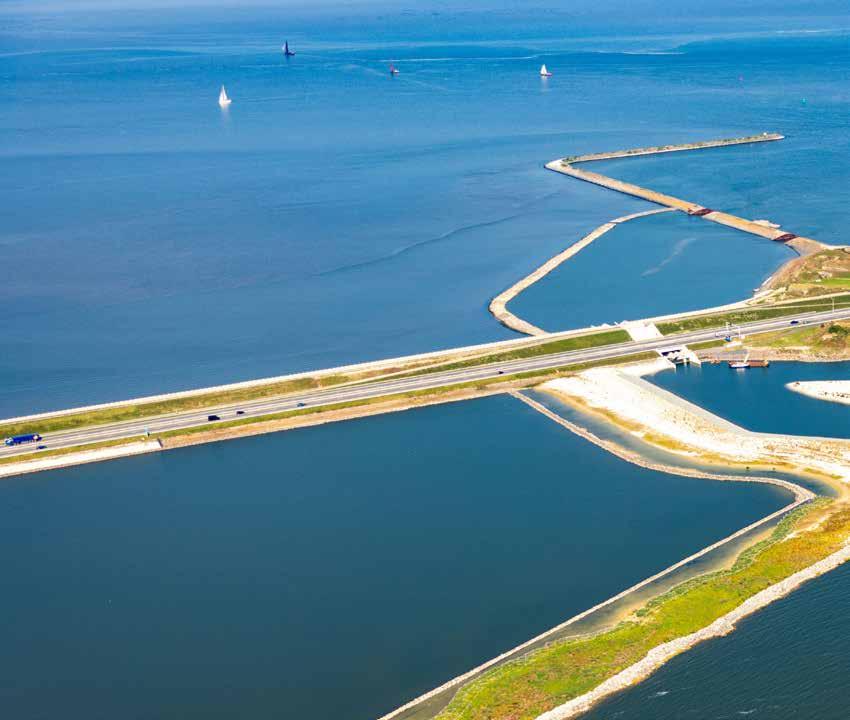
The Afsluitdijk protects the Netherlands from the sea. However, the dyke is a huge obstacle for fish: it makes it impossible for them to swim from the freshwater IJsselmeer to the seawater Wadden Sea. Yet migratory fish need both freshwater and seawater to grow and reproduce. With the arrival of the unique Fish Migration River in the Afsluitdijk, fish will soon be able to swim back and forth unimpeded. The Fish Migration River is the world's first tidal river between freshwater and seawater. The underwater environment will be a largely circular construction, using materials from the surrounding area. From rubble released during the reinforcement of the Afsluitdijk to reeds from the Makkum Noordwaard. Good for the fish, great for the planet.
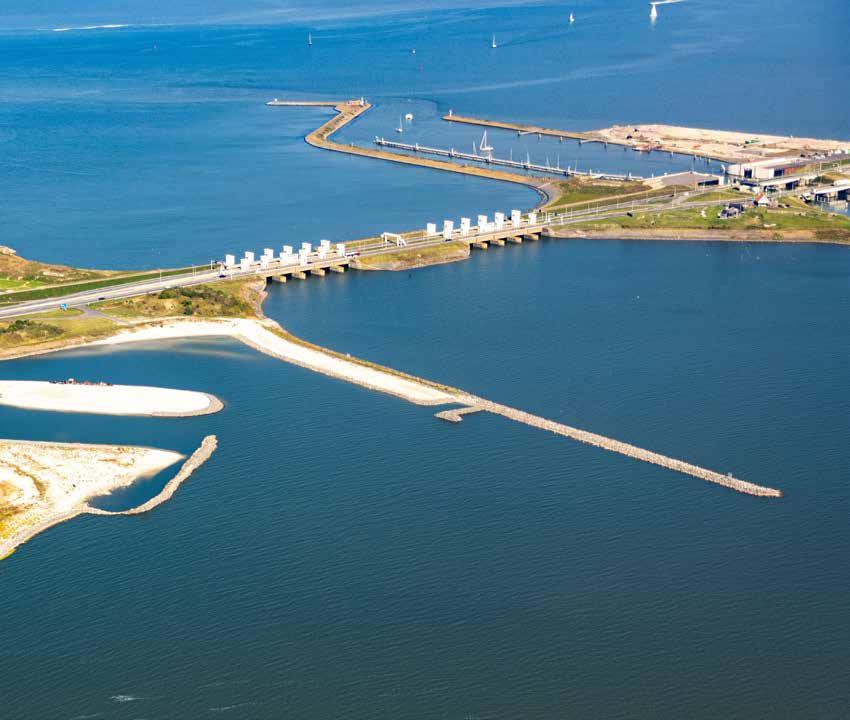
MARIA LE ROY, BAUKE DAM AND JANTIE VAN DER LAAN
In the transition to a circular economy, the Frisian authorities hold an important position as regional policymakers and as pioneers and drivers of change. They know what that means in Smallingerland and Súdwest-Fryslân: making deliberate choices and sometimes swimming against the tide.
A discussion between councillors Maria le Roy and Bauke Dam.
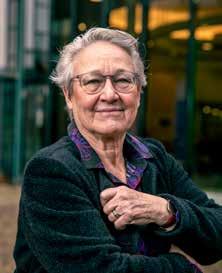
"Circularity cannot be a separate project, it has to the standard in everything we do," Maria le Roy, councillor in the Smallingerland municipality, opens the conversation. "Take a look at the new swimming pool in Drachten. It has a circular design with solar panels on the roof and an energy house with batteries to store excess power. As many of the materials as possible are removable so they can be reused, and heat is recovered from the water in the showers." Bauke Dam, councillor in Súdwest-Fryslân, has another great example: "Same for us - circularity is not just an ambition on paper but a matter of doing it. The newly built field-service site in Bolsward will be built with recycled materials and will be completely energy-neutral. Furniture for the new building will be made of the trees that had to be cut down. A great example of reuse and a short chain.
Such powerful examples suggest that circularity is a given but both councillors know that there are still many challenges that can slow down circular development. For instance, the current legislation and regulations are not yet completely in sync with the Frisian ambition. Awareness of the subject is another major hurdle. Maria: "Circularity is not an option; it's a necessity. If we don't demonstrate that it can be done, how can we expect entrepreneurs and residents to do it?" Frisian municipalities are increasingly applying 'practise what you preach'

in their own purchasing and tenders. That proved that it is far from necessary to use new materials every time. With careful storage and digital records of return materials when roads or quays are replaced, they can be reused within the municipality or in another municipality.
Bauke: "We welcome the experience we’re gaining in Súdwest-Fryslân by cooperating with other Frisian municipalities and by working with entrepreneurs. For instance, we organise meetings where individual entrepreneurs can learn more about circular procurement or circular business models. In this way, we encourage them to make a positive impact. We’re working with larger companies to develop future-proof business estates."
‘If we don't do it, how can we expect others to do it?’
The latter is not a matter of a few solar panels and a charging station at the entrance. A future-proof business estate requires a major transition. "That, and a close-knit business network," Maria explains. "Companies really need to get to know each other first. In Smallingerland, we asked an independent agency to map our largest business estate in detail." What does an analysis like that reveal? What needs to change? "Smart energy exchange, joint water treatment, and using residual waste flows. For example, one commercial building could be heated with the waste heat from an adjacent business. Why should rainwater go unused and disappear into the sewer if it can also be used for cooling or watering the planting?"
According to the Smallingerland councillor, you should look at business estates as ecosystems. "Again, collaboration is the solution." The same principle - organise things properly first and then act - also works well at another site in her municipality: business estate De Haven in Drachten. New companies are not given a randomly selected spot but one that suits them logistically. For example, organisations that can use waterway connections for their supply and deliveries are given a place on a waterway. The result is fewer lorries on the road, lower emissions, and more efficient operations.

Jantie van der Laan of Circulair Friesland praises the long-term vision of the Frisian municipalities: "Instead of choosing the easiest route, they’re looking to the future. That takes courage. But every step we take - public bodies, entrepreneurs and educational institutions - is bringing Friesland closer to a future where waste is a thing of the past. Those who don’t change with the times will soon be left behind. I’m certain of it."
From small initiatives to solid collaboration, people across the province are working towards a clean, healthy, and happy Friesland. Journey with us to fabulous projects and vibrant places brimming with innovation.
Harlingen
Ships are and always will be of great importance to our economy and society. The Smart and Circular Shipbuilding programme, part of the sector agenda for the Maritime Manufacturing Industry, is designing the 'Shipyard of the Future': a circular approach to ship design, construction, maintenance, and refurbishment.
Leeuwarden
When you think of water technology, you think of WaterCampus Leeuwarden. By connecting businesses, knowledge institutions, and public bodies, the WaterCampus is the driving force behind many water-technology developments and innovations. Furthermore, the WaterCampus has the ambition to fulfil that sector-connecting role for the whole of Europe.
Leeuwarden
Pursuing a circular business in the Northern Netherlands, how do you go about that? The Noord Nederland Verdient Circulair programme, in which the provincial executives of Groningen, Drenthe and Friesland work together, helps entrepreneurs find the answer to that question.
Leeuwarden
Leeuwarden Energy Knowledge Centre is Leeuwarden's sustainable campus. It is where companies, public bodies, and educational institutions come together in order to accelerate the energy transition.
Drachten
In Drachten, a group of high-tech companies are working together on impressive innovations. The companies in the Drachten Innovation
Cluster share a location that is fully equipped for testing innovation: for example, there are specific workshops available for research & development, and test facilities for 3D printing. The site will soon be expanded with lecture theatres, so that young children and students can also learn about the latest technologies.
Oosterwolde
The Biosintrum is the beating heart of the biobased economy in Fryslân. The centre consists of more than eighty per cent biobased materials. This makes the Biosintrum one of the most sustainable and innovative buildings in Europe. A title to be proud of!
Joure
Did you know that an average 7.5-minute shower consumes about 65 litres of water? If you skip a shower and wash at the sink with a flannel instead, you will save many litres of water. In 2024, we paid tribute to the flannel with the #douchelief campaign. It was a resounding success: the campaign was widely covered in the media.
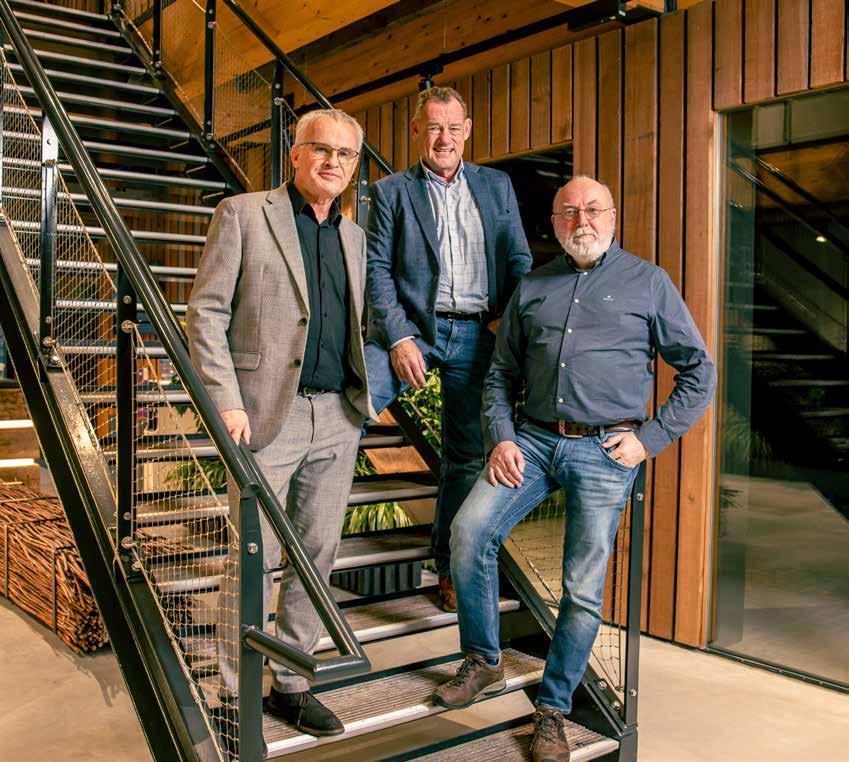
Develop a circular infrastructure? That is just a matter of using common sense, Harm Beerda believes. At the Swettehûs, the former CEO of regional infrastructure contractor Oosterhof Holman speaks with Hendrik Holties, Managing Director of Oosterhof Holman, and Sieds Hoitinga, Programme Manager for the provincial executive of Friesland. A conversation about having courage, working together, and bending but not breaking.
They have a special area of expertise. Incredibly important, and invisible at the same time. "When infrastructure works, you don't notice it at all. But when it fails, you realise how much we rely on it," is Hendrik’s apt summary. Sieds lists: "Roads, bridges, tunnels, railway lines, waterways, power grids, sewers, optic-fibre cables. Without infrastructure, there would be no trade, no economy, and no society as we know it."
The three infrastructure men meet at It Swettehûs, which houses the provincial water authority's bridge control centre. About half of the building is made of reused materials: a successful example of a building that has been synonymous with circularity and sustainability since it was opened in 2022. It Swettehûs was built on the basis of collaboration between builders, contractors, architects, and the provincial executive of Friesland as client. All parties realised – and still realise - the importance of a circular future.
The same intrinsic motivation inspired the Tarmac Covenant in July 2024. That covenant sets out the agreements that will help the three northern provincial executives, municipalities, and businesses to make the tarmac chain more sustainable. "This covenant provides a blueprint that can have an impact regionally as well as nationally," says Hendrik.
No matter how essential it is, the environmental impact of tarmac is significant. The covenant puts an end to that. There must be fewer types of asphalt, the material must have a more sustainable composition, and lower production temperatures should reduce CO2 emissions, pollutant emissions, and raw material wastage to a significant extent. Harm: "We can argue about coffee cups until we’re blue in the face, but if you really want to reduce CO2 emissions, you have to look at the big boys: tarmac, concrete, and earthworks. That's where the impact is."
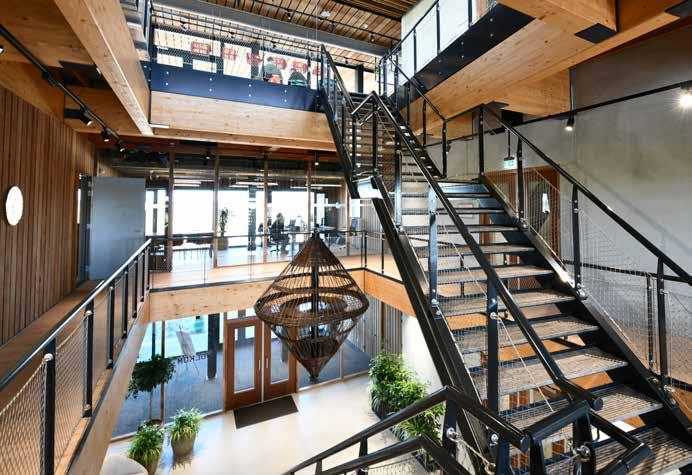

To achieve that impact, the whole value chain needs to work together. There can be some friction in the conversations along the way, Sieds reveals. "But that's no big deal. Of course we clash sometimes, but we have the same objective: an infrastructure that is strong and future-proof."
The same applies to the Grip op Grond initiative, which started in 2010 as a project of the provincial executive. In that project, soil released from one project is reused in another. That leads to less transport, less storage, lower costs, and most importantly: lower CO2 emissions. Grip op Grond started at a construction project in Sneek. The sand that had to be removed was perfect for a new stretch of national road somewhere else. Since then, the system has been refined and expanded: leftover construction soil was cleverly reused in the construction of several aqueducts, dyke reinforcement projects, and the fish migration project in the Afsluitdijk.
One project that required logical thinking and courage is near It Swettehûs: the new bicycle bridge in Ritsumasyl was made of biobased composite, a material whose actual practical feasibility was unknown. Models from universities calculated that it could be done, a bridge made of circular plastic. Even so, the management, maintenance and operation - the material bends quite a bit compared to traditional materials, such as metal and concrete - had yet to be proven in practice.
Friesland had the courage to give biobased composite a chance. Sieds, Hendrik, and Harm stress the importance of politics leading from the front. Hendrik: "In our province innovations are given a real chance. Maybe because we know each other and our positions are clear. And if it goes wrong? Then we solve it together." So yes, the bridge at Ritsumasyl bends but it doesn't break. In fact, this is exactly like the mindset required on the way to the new normal.
‘If you really want to save CO2, you have to look at the big boys’
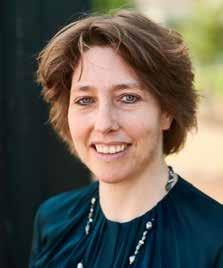
JOYCE WALSTRA IS THE CHAIR OF THE SME NORTHERN NETHERLANDS ORGANISATION, AND A BOARD MEMBER OF VERENIGING CIRCULAIR FRIESLAND. IN THIS COLUMN, SHE SHARES HER VIEWS ON THE CIRCULAR TRANSITION IN FRIESLAND.
"Leave the world a little better than you found it." They are wise words from author Robert BadenPowell. I see many entrepreneurs embracing that credo. And before I give the impression of preaching to the choir because I 'happen' to be active in the world of entrepreneurs: research confirms that almost half of SMEs consider sustainability when they make investment decisions. For about 40% of SMEs, sustainability has a major influence on the procurement of products and services.
I recognise this drive among our members. There is a clear belief among them that we are not just doing business 'to make money'. No - we do business in such a way that our children can grow up in a beautiful world. We manufacture in innovative ways, make smart use of raw materials, and make new, sustainable energy the norm. It takes time to implement circularity in a company or chain. It takes a long time. Sometimes it works and sometimes it doesn't. In the latter case, it’s nice to be part of Circulair Friesland to meet like-minded people. To vent, gain new ideas, go home with renewed energy, and to press on with circular work.
Legislation is an important player when it comes to circularity. Sometimes legislation and regulations are out of sync with reality, and sometimes they are highly prominent. Fortunately, the association has a so-called Legislation and Regulation ThinkTank. They know exactly what can and cannot be done. Do legislation and regulations really need change? If yes, the members of the think-tank make suggestions to policymakers and politicians.
Circulair Friesland is already a powerful collective with a fantastic following but Friesland has 20,000 registered companies. Just imagine the opportunities that would be created if all these companies fully embraced circularity. Let us leave the world a little better than we found it. And let us do so with an ever-growing collective.
‘
Never before have Brussels and Europe seen so much collaboration on circular transition. Particularly at a time when international geopolitical turmoil consumes so much attention, European networks and regions are joining forces, notices Françoise Bonnet, Secretary General of ACR+, the European network for circularity.
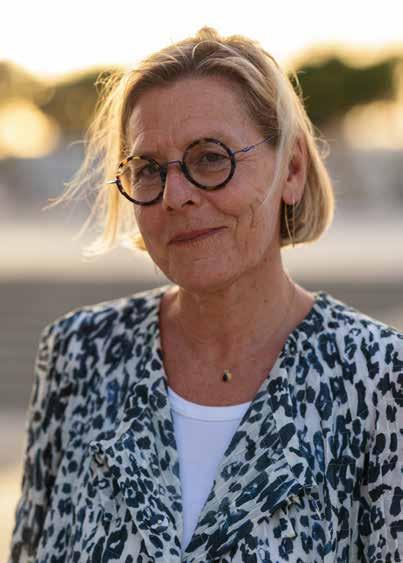
Together, you are stronger. That has been ACR+'s guiding principle for more than 30 years. This European networking organisation, the abbreviation stands for Association of Cities and Regions for Sustainable Resource Management, connects European cities and regions that have circular ambitions. But ACR+ does not limit itself to regions and cities: educational institutions, commercial businesses, and charities are welcome too. That open attitude is proving to be more important than ever.
"The European circular transition is at a tipping point," says Françoise, a slight concern detectable in her voice. "With the turmoil in the world, concerns about climate change are fading into the background. Not only among citizens, among administrators too. But you can't put the environment on pause: the developments continue. To make sure the issue gets the attention it so desperately needs, we need everyone on board."
Bridge-builder
The ACR+ Secretary General speaks with great enthusiasm. She is up to date with the latest European developments, knows which legislation is being hammered out, and sees which topics get most attention - and which less. But Françoise is more than an advocate for circularity and sustainability. She is also a bridge-builder. She is the head of an organisation that is the ‘spider in the web’ of Europe's circular transition.
‘Our members help each other along’
"We are the gateway for regions that want to work on circularity at a European level. By cleverly linking regions together, for example because they share the same ambitions or can complement each other, they can help each other." The network organisation also coordinates joint grant applications and, with Brussels as its seat, it is literally close to European politics. "This allows us to keep our members well informed."
The region is just right
There is a good reason why ACR+ focuses on strengthening regions from Brussels. "It’s easier to develop a project, innovation, or product on a smaller scale. Something that comes from nearby is often embraced more easily. However, a local approach can be just too small: it lacks clout. A regional level is often just right." The Secretary General explained that supply and demand come together in a region. "So with a regional approach, you can influence both. That is highly effective." And if a project or innovation has proven itself on a regional scale, it only encourages scaling up to a national or European scale. "Spread the word!" she says, laughing.
Friesland has been a member of ACR+ since 2018 and has been represented on the board for some time too. At the time, the Frisian approach, in which companies took the first steps towards regional circular transition, surprised Françoise: "Each region has its own approach, but Friesland's is unique. The way public and private organisations meet and cooperate is truly interesting. I also notice that Friesland really has the will to do things differently. To change or improve existing systems and patterns. That drive, along with the 'bottom-up' approach and the numerous projects and innovations, makes Friesland a European leader."
A foundation for the new generation
It is the ACR+ network that put Friesland into contact with other frontrunner regions. The province now plays a role in several European projects. A new, ambitious project involving Friesland was launched in September 2024: European Circular Innovation Valley. Nineteen partners from nine different countries work together on a project to develop regions into vibrant circular 'hubs'. "We focus very clearly on changes within the regions and on developing a self-contained ecosystem in each region. I have great expectations for this project. When these vibrant hubs are located all over Europe, the circular transition will get a huge boost. And it certainly needs one."
Projects like these give her confidence in the future. She may be concerned about the declining focus on sustainability and circularity, but Françoise is also optimistic. About the new generation, for example. "Climate awareness among young people is high. Their generation puts wellbeing above money and things. Their generation is willing to consume, manufacture, and live in a different, sustainable way. Together with all our partners, we are laying the best possible foundation for that generation."
In Friesland and far beyond, we are working towards a circular future. How do other countries and regions view Friesland's role in the circular transition? Here are some of the responses from our European partners.
Wim Stubbe
Expert EU grants and networking, Inter-communal Leiedal and North Sea Region (Belgium)
"The province of Friesland is a frontrunner in outlining realistic circular economy policies. The region's drive to embed the circular economy in the day-today operations of companies, combined with solid product knowledge, is a very strong asset."
Chief Executive, Zero Waste Scotland (Scotland)
"Circulair Friesland has integrated circularity into its regional identity." The strong local involvement and partnerships between businesses, public bodies, and educational institutions, make Friesland a global leader in circular economy. The region translates circular principles into a sustainable, resilient and regenerative economy: this benefits people and the planet. Scotland is keen to follow the Frisian model: we look forward to learning more about the role the region plays in achieving national goals."






Handelskammer Bremen (Germany)
"When I look at Friesland, it's almost like getting a glimpse of the future. A tour of the region introduced me to the networks and organisations behind the circular transition. That was so inspiring that I came up with the idea of following Friesland's example in my own region. The province of Friesland is an important role model and dialogue partner for us, and their enthusiasm is infectious."
Senior Specialist, The Baltic Institute of Finland (Finland)
"Friesland is determined to transform its economy. Local businesses and communities join forces in circular initiatives, waste treatment is increasingly optimised, and innovations are embraced.

Friesland's approach is a great example for our region."
Anja Bubik Vice-President, Faculty of Environmental Protection (Slovenia)
"Friesland's success in the circular economy has three main reasons: a strong sense of community, far-reaching strategic decisions, and an innovative approach to sustainable developments. The region excels at implementing effective projects. By working closely with industry, innovation and reality come together. The
collaboration between education, research, and sustainability is not only inspiring but also shows that real change is possible. Even in smaller regions."
Community Strategist, City of Helsingborg (Sweden)
"During the international Circular North Sea Region project, I first became acquainted with Friesland's circular skills. I was particularly impressed by the Grip op Grond project, which links projects where land is released with projects where land is really needed. Helsingborg's ambition is to reuse more construction materials. Together with the Scania region, we are currently exploring opportunities to start our own Grip op Grond project."
Senior Advisor, Nyborg Kommune (Denmark)
"I have been working with Friesland for several years in the Circular North Sea Region network. With its circular strategy and vision for the region, Friesland was ahead of its time. The fact that the region has succeeded in focusing on circularity for a decade in these turbulent times, is an achievement in itself. Circulair Friesland has also continuously attracted and inspired new partners. The association demonstrates better than anyone that circularity is not a strategy but a mindset."
Something special is emerging in the heart of Leeuwarden. The new Spoordok residential neighbourhood, where construction will start in 2027, will become the epitome of circular construction. The motto of the ambitious and innovative construction project? 'Not a drop of water leaves the neighbourhood!'

It's easy to say 'Leeuwarden is growing, so we need to build.' But the real question is: how do we want to grow? The ambitious plans for Spoordok are the answer. "This residential area will be a paragon of circular construction," says Renske Keijzer. As Programme Manager, Renske is closely involved in developing the new neighbourhood with the municipality of Leeuwarden. "Together with Wetterskip Fryslân and knowledge institutions, we are exploring ways to use water and raw materials more intelligently. We mean to go beyond just reusing rainwater. For example, we are thinking about how human waste such as faeces can be returned to the soil as fertiliser."
"The water authority is happy to cooperate with innovative projects of this kind," added Monique Plantinga, Board member of Wetterskip Fryslân. "Together with the municipality and Wetsus,
we are exploring various options for rain and wastewater collection and reuse. Consider spatial planning: how do you capture water that cannot enter the ground in paved areas such as roads and car parks? Our aspiration is 'Not a drop of water leaves the neighbourhood!"
So with the development of Spoordok, Leeuwarden is facing a circular metamorphosis. The project should lead to a new and above all vibrant neighbourhood: twenty hectares of cityin-progress, where living, working, and circularity come together. With about two thousand homes, a green public space, and smart mobility solutions. By the end of 2025 or early 2026, the environmental plans must be finalised, the first permit applications will be submitted, and the foundations can be laid. The Stadsterp van de Toekomst, as the project is also called, will see the first homes appear in 2028. Low-rise and highrise residential towers of up to 75 metres high. Renske: "What we create has to fit the character of Leeuwarden." And what is that character?
‘We
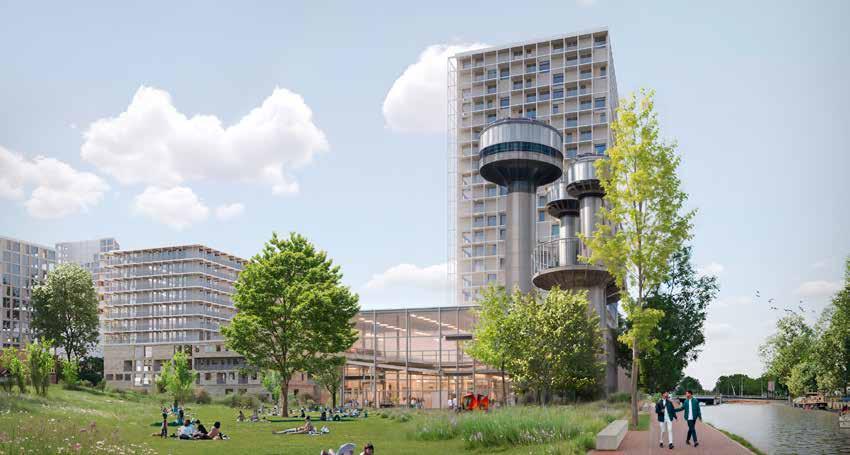

It is largely determined by water. It's even on the sign when you enter the city: Leeuwarden, Capital of Water Technology. "Sounds great, but what does it add up to? You only find out when you take a deep dive. The main focus of affiliated companies and their technologies at the WaterCampus is abroad. But why not demonstrate them here? Right in the heart of Leeuwarden? Spoordok will be a testing ground where we will apply much of that knowledge."
A neighbourhood full of water innovations: this is where Wetterskip Fryslân feels at home. The water authority has big ambitions: climate-neutral by 2030 and 100% circular by 2050. "As a water authority, we are a major consumer of resources with many projects for clean, safe, and sufficient water. Rising commodity prices and scarcity underline the importance of switching to recycling raw materials," the board member explained. Therefore, Friesland joined the Clean and Emission-Free Building Covenant (Convenant
Schoon en Emissieloos Bouwen) and participates in the development of Caleyda, a natural plastic substitute from wastewater. The water authority is also proud of completing the first circular mill in Friesland, at Kalverdijkje, near Leeuwarden. And the showpiece? That is the collaboration with Grienskip, a social enterprise that gives people who have difficulties accessing the labour market the opportunity to work at the water authority.
The water authority was already gaining experience with the separate collection of wastewater streams, allowing recovery and reuse of substances from water. "And in a residential area in Sneek, we gained experience with decentralised water treatment with the Waterschoon project. Wastewater from over two hundred new-build homes is collected separately at source and cleaned at a small treatment plant in the neighbourhood." The board member stresses the importance of such innovations. "If we invest in this now, there will be savings in the longer term. And the knowledge and experience we gain in our projects? We put those into practice in Spoordok."
From innovative construction projects to inspiring collaboration, our members and partners in Friesland are working hard towards a circular future. Which result or collaboration is the pride of these difference-makers?
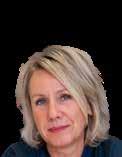
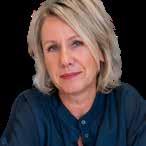
"We’re proud of our contribution to 'Hof fan Lemmer', a progressive water district in Lemmer. The seven pillars of circular construction are at the centre of constructing the district. The project shows how these circular principles can be applied effectively, marking an important step towards watersustainable neighbourhoods. With Hof fan Lemmer, Friesland strengthens its position as a frontrunner in circular construction."
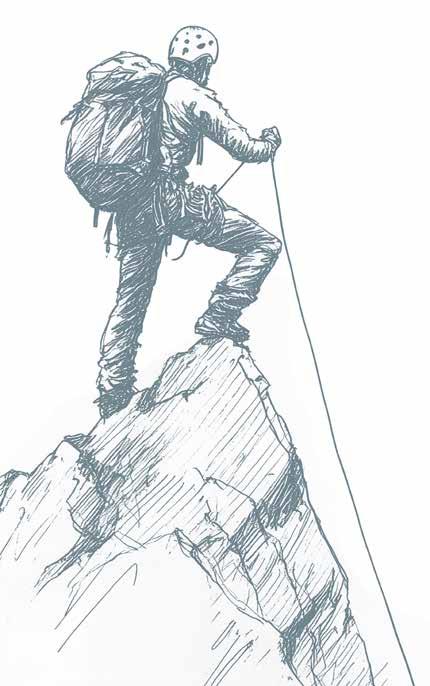

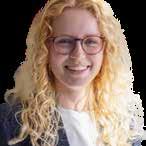
Communication student
(NHL Stenden University of Applied Sciences)
"When I studied Fashion Design & Marketing as my minor, I discovered how important circularity is in the fashion industry. And I found out how much could be improved in that area. That insight made me make more conscious choices myself: I donate and repair my clothes and buy second-hand more often. So, I wear my clothes longer and feel better about my choices!"
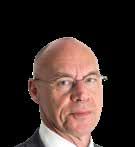

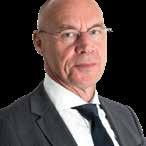
Aeres University of Applied Sciences
"In the Week of the Region, students from Aeres and other educational institutions investigated the consequences of water management, groundwater salinisation, and the impact of peat oxidation in the peatland area on the environment and the agricultural sector. They also included the concerns of farmers, citizens, and policymakers in their research. The students came up with practical, sustainable solutions that contribute to a liveable peatland area."
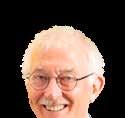

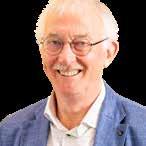
Municipality of Waadhoeke
"Waadhoeke makes sustainable choices that perpetuate Friesland's frontrunner position. We are the first Frisian municipality to sign the Clean and Emission-Free Building (SEB) programme and have our staff trained in the importance of acting sustainably themselves. We are exploring opportunities for circular applications for two of our housing projects. And thanks to a great partnership with our dealer, our field staff works in hybrid lorries."
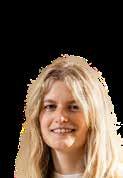

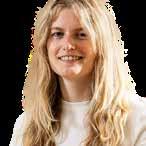
Cycle Up HUB
"We are proud of opening Friesland's first circular HUB! We managed to unite local, sustainable entrepreneurs so we can produce sustainably and socially together. In our HUB's social workshop, raw materials are transformed into new, sustainable products. Moreover, we were already organising many sustainable events focusing on circularity and collaboration."

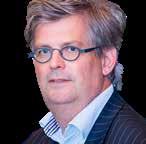
Drachten Innovation Cluster
"In the Drachten Innovation Cluster, seven companies are working together on energy savings in hightech systems in the so-called use phase. This is the longest phase in the life cycle of a system. We are also exploring new ways for reusing as many parts or components as possible when a system reaches the end of its lifespan. That is how we contribute to a strong high-tech ecosystem in Friesland."
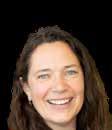
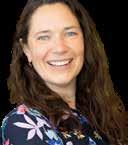
Donker Groep
"Donker Groep was crowned the Most Sustainable Gardener in a Public Space in 2024 by Tuin+Landschap. We’re really proud of that! An independent panel of green professionals assessed our operations on social and environmental sustainability. The award is a great confirmation of the course we’re on. A recognition of our mission to connect people and nature."
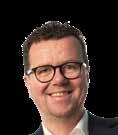
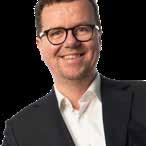
Rabobank
"We’re proud of our collaboration with Hydraloop in realising the new-build neighbourhood 'Hof fan Lemmer'. In October, we signed a collaboration agreement with Hydraloop: together we will analyse the value development of homes with water-saving systems. Thanks to this kind of research, the exchange of knowledge and strong local networks, we, as Friesland, are a frontrunner and a testing ground in the field of water technology."
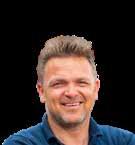
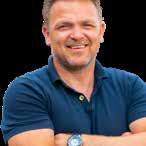
Hekstra
"We insulated 13 roofs with Frisian Hemp in the village of Easterlittens, together with Elkien housing association and Lont construction company. We are really proud of this biobased roof renovation! For this project, we used our own roofing elements. They are produced in our workshop in Damwâld and are detachable, so they are easy to dismantle and recycle at the end of their lifespan. An important step forward towards a circular future!"
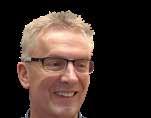

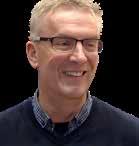
LWD Basket
"Since 2024, LWD Basket has been a partner of Circulair Friesland. Following a meeting between members and our partners, we are about to start the first projects to drive circularity. For example, partners will soon be able to attend a CIRCO Track with us: a workshop that helps companies get started with circular business. There are undoubtedly many more projects to come."
Across Europe, hard work is being done on the circular transition. Countries and regions collaborate in various projects and programmes. Friesland also seizes opportunities to strengthen the circular economy beyond our region's borders.
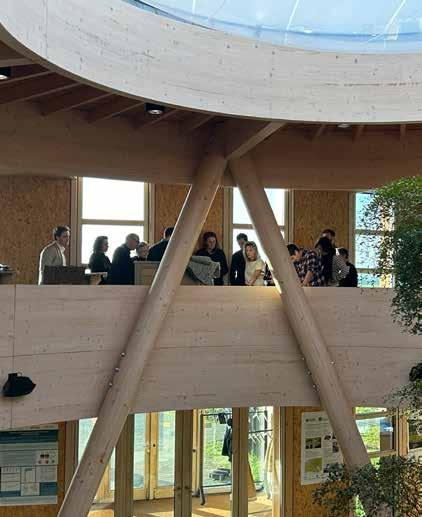
This programme encourages international collaboration projects that reduce economic disparities between regions and member states. This takes shape in many different ways:
Interreg D-NL strengthens collaboration in the border region between Germany and the Netherlands. This includes the X-Lives project, for example, in which Dutch and German partners work together to promote circular innovations in polymer, fibre, and mineral materials.
The North Sea Region facilitates collaboration between regions in seven countries around the North Sea. An example is the Building Based on Biobased (BBoBB) project, which focuses on developing and strengthening value chains for biobased building materials. Developed methods and business models are applied in five regional pilots.
Interreg Europe focuses on improving regional policy programmes. For example, the PLASTIX project focuses on addressing the growing problem of plastic waste and the effectiveness of plastic recycling.
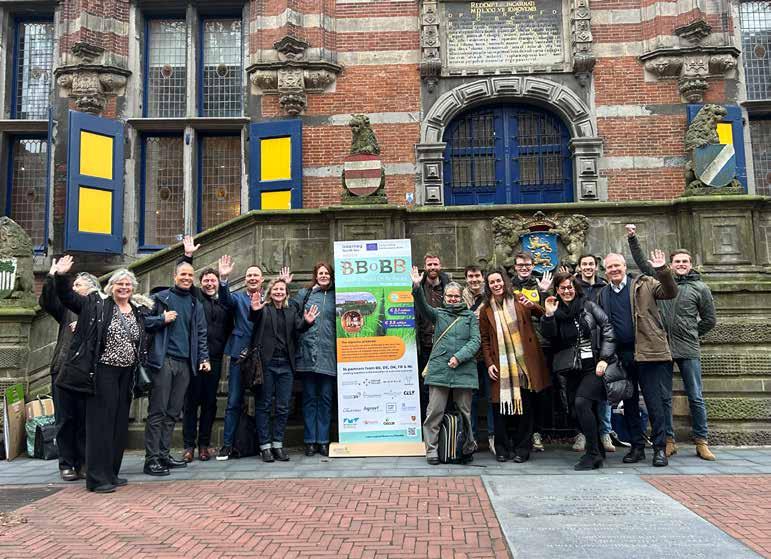
Highly innovative projects at the heart of European objectives can count on Horizon Europe's support. One of the projects under Horizon Europe is European Circular Innovation Valleys. This project connects interregional chains and ecosystems for the circular economy. The project also includes a European fund for interregional collaboration between organisations from participating regions.
Together with the provincial executives of Groningen and Drenthe, Friesland is working to develop the regional economy in the north. The ERDF supports a variety of circular projects: from smaller valorisation projects where innovative prototypes are developed and tested, to large ecosystem projects such as Noord-Nederland Verdient Circulair.


We welcome collaboration and support from experts on circularity and sustainability. How do these experts view the circular transition in Friesland?
‘Friesland plays an exemplary role’
"When I wrote the raw material flow analysis with Metabolic, which initiated the establishment of Circulair Friesland ten years ago, I naturally hoped that my report would not end up somewhere at the bottom of a desk drawer. Thankfully, it didn’t but that wasn’t a given. Change is complicated: people quickly resort back to old patterns. But as the association has continued to push forward and keeps connecting people and organisations, the circular transition has taken off in Friesland."
"To achieve a circular economy, entire chains have to get behind the transition. In Friesland, this succeeds because companies, public bodies, and educational institutions have formed a solid network. That approach is quite unique in the Netherlands and in Europe." As a frontrunner, Friesland is setting an example. The region could make even more of that role. For example, I see great opportunities for developing circular agriculture and improving
water quality. If Friesland, the province of water and agriculture, demonstrates that you can transform those chains too, it will inspire other regions and perpetuate Friesland's leading position."
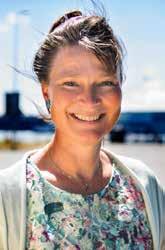
Marjan Minnesma Director Urgenda
‘The state and the regions need each other’
"In the transition to a circular economy, the state and the regions need each other. That’s why I’m so pleased with our contact with Circulair Friesland. We meet at events like the World Circular Economy Forum or the Springtij Forum on Terschelling but also know how to find each other elsewhere. For instance, the state and the regions are currently in the process of reaching agreements on the circular transition. Of course, Friesland is involved in this."
"Friesland was one of the first regions where public bodies, educational institutions, and entrepreneurs actively worked together to become circular. Great strides have already been made by acting together and by being bold and entrepreneurial. The fibre hemp deal is an excellent example, as is the National Circular Plastics Test Centre (Nationaal Testcentrum Circulaire Plastics). Many regions in the Netherlands are already working on circularity. Each region does things slightly differently. That’s not a bad thing: it
is precisely because of these differences that we can learn so much from each other. So I hope that Friesland will continue to go full steam ahead and inspire other regions. And in ten years’ time? I hope that circular business and investment will have become the norm by then. That we will have left the linear economy behind."
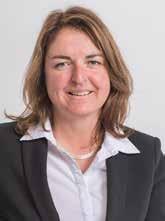
‘Sliepe yn 'e Takomst proves the power of collaboration’
"Trying something new can be lonely. Gather people or organisations with the same ambition and mission around you, and you can share your ideas, knowledge, or concerns. Then you can help each other move forward. That is precisely what is happening in Friesland. Circulair Friesland connects parties from across the region that play an important role in the circular transition in Friesland."
"I experienced this myself in the Sliepe yn 'e Takomst project. For that project, leisure entrepreneurs, construction companies, students, and architects designed seven different biobased, circular holiday homes. I had the honour of being the project manager. There was a tremendous drive among the participating organisations to really create something beautiful together. That energy coupled with the contribution of everyone's expertise led to fantastic results. Sliepe yn 'e Takomst proves the power of collaboration: had the parties worked separately on a similar idea, they would never have come this far."
Marieke Spijkerboer
Director of the Sustainable Environment and Circular Economy Directorate (Ministry of Infrastructure and Water Management)
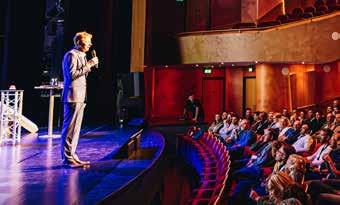
Gerrit Hiemstra Meteorologist and co-founder of Oarshûs
"To me, the project demonstrates that biobased construction offers a whole host of opportunities. Tens of thousands of houses need to be built in the coming years. What if they were all biobased? Then we'd reduce the housing shortage without putting any further strain on the climate. If there is anywhere where this can be done, it’s Friesland."
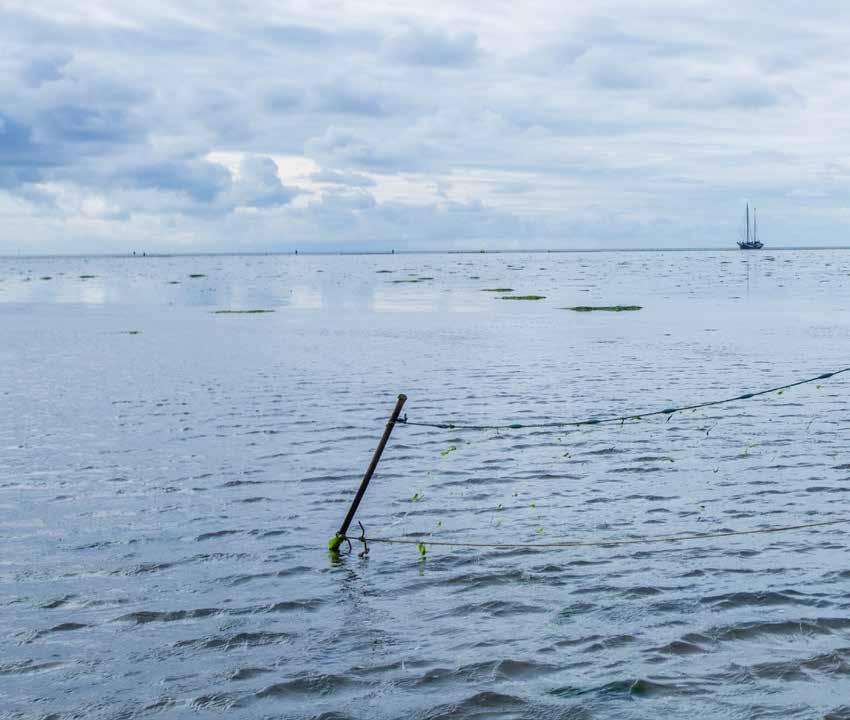
THE WADDEN SEA IS A UNIQUE NATURE RESERVE AND IS ACTUALLY A UNESCO WORLD HERITAGE SITE BUT THE AREA IS UNDER PRESSURE. PLASTIC WASTE FLOATING IN THE SEA POSES A MAJOR THREAT TO FLORA AND FAUNA. THAT HAS TO CHANGE.
In the Wad Gaat Om programme, public bodies, entrepreneurs, civilsociety organisations, educational institutions, and designers are working together to reduce plastic pollution. Because ridding the Wadden area of the massive amounts of plastic is an enormously ambitious task that can only be tackled together. Wad Gaat Om is all about prevention and the structural clean-up, collection, and recycling of plastic. Sustainable alternatives to plastic are explored at the same time. The parties involved also want to make as many people as possible aware of the disastrous consequences of plastic waste in nature - an awareness that will hopefully lead to behavioural change.
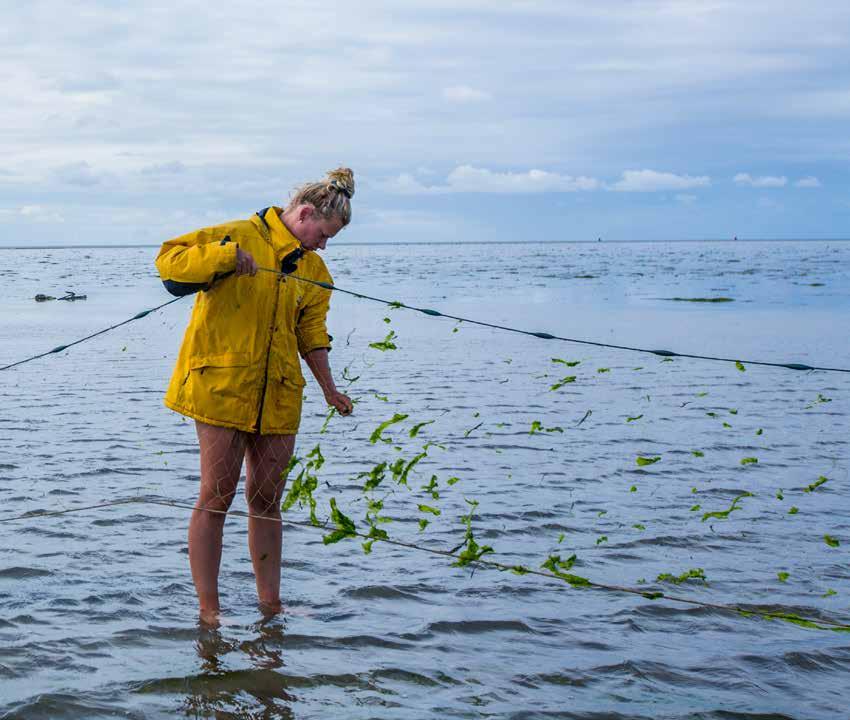
Two to four hundred kilos of rubbish wash ashore on Terschelling every week. As a proud islander, Vincent Kooijman did not want to watch the pollution of the beautiful beaches of 'his' island. With De Jutfabriek, he creates new products from beach waste and inspires others to keep the mudflats clean.
Jerry cans, rope, PET bottles, packaging, broken off pieces of plastic: all sorts of things wash up on Terschelling's beaches. Most people would call it rubbish. But to Vincent Kooijman, they are commodities. He started De Jutfabriek about six years ago. In that 'factory' - actually it’s a workshop - he processes washed-up plastic into new, valuable products. Soap dishes, lamps, coat hooks, or coasters made from nothing but waste.
The beach as a calling card
As a keen beachcomber, Vincent often came across washed-up plastic rubbish. "I thought: I have to do something with that. The beach is Terschelling's calling card. If it’s a dump, visitors won’t want to come. Surely, we have to prevent that?" After a brainstorming session with a likeminded neighbour, the idea for De Jutfabriek was born. The two asked a fellow islander for financial support for purchasing two machines that grind, melt, and press plastic waste into
a new product. They also submitted a plan to Streekwurk, the department of the province of Friesland responsible for grants for projects and initiatives in the region. With the grants De Jutfabriek received, Vincent developed workshops for primary schools, among others. Since De Jutfabriek came into being, many kilos of beachcombed plastic have disappeared into the machines. The entrepreneur receives plenty of help from islanders who bring him plastic. "Some come with bags full, others just bring a rope. I don't care how much rubbish you beachcomb because even just that one piece of rope contributes to a cleaner beach." In the autumn of 2024, Vincent opened a shop to sell the recycled products.
‘The beach is Terschelling's calling card. If it’s a dump, visitors won’t want to come.’
Raise awareness and inspire
However, the entrepreneur's ambitions extend beyond plastic processing. "I want to make as many people as possible aware of the amount of waste in the Wadden Sea and inspire them to clean up even a small patch of beach." Giving workshops to primary school children has been an important part of his business from the very beginning. "I believe in the power of action. That’s why I let children make their own products from beachcombed plastic. Seeing that they can turn a pile of rubbish into a carabiner is something they won’t forget. I’m certain of it."
Vincent is also part of Wad Gaat Om, a programme committed to a plastic-free Wadden area. Because no matter how many jerry cans, fishing nets, and PET bottles De Jutfabriek cleans up; the plastic problem is bigger than just Terschelling. "In Wad Gaat Om, entrepreneurs, lawyers, policymakers, and other stakeholders work together. Everyone shares their expertise so we can tackle the problem from different angles. That’s really effective."
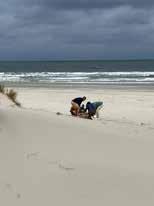
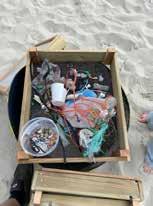
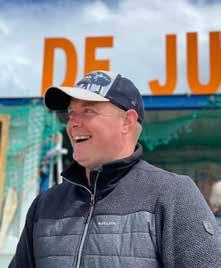
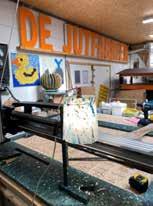
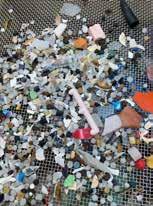
Learning from each other "Wad Gaat Om is divided into several working groups. My group deals with cleaning up, structuring, and recycling. We compare the clean-up operations on the various Wadden Islands. In the end, each island does things slightly differently; what can we learn from each other? Is it possible to develop one approach for all the islands, and what would that do for results?" Vincent talks about how much it energises him to come together with like-minded people, with people who share his mission. "Knowing that I’m not the only one doing this makes me even more driven to keep going." Does he think it’s possible, plastic-free mudflats? He is silent for a moment. "I hope so. If there ever comes a day I have to close De Jutfabriek because no more plastic washes ashore on the whole of Terschelling, I'll celebrate."
JONGE
A seasoned entrepreneur and a young newbie, united in their belief in deposit systems. Alex Elsinga built CupConcept into an empire of reusable cups, while Okke de Jonge made shipping packaging sustainable with BOXO. Two generations, one vision: reducing waste with innovation. Together, they inspire others, determined to move towards a future without waste.
Alex's adventure began with one key ingredient: fun. "I was ready for something else and wanted to quit hospitality," so he made a promise to himself during the corona period. At the time, Alex was coowner of several Leeuwarden catering businesses, including Het Broodhuys Broertje, Intermezzo, and Oranje Bierhuis. His plan? Visitors pay a deposit for reusable cups, so the floor isn't a huge mess during and after a party. "I bought 100,000 cups, put them in a trailer behind the car and just went to events."
Empire
In the beginning, Alex collected the reusable cups himself, washed them shiny clean in a home-made ‘dishwasher’, and put them back in circulation. Things couldn't be more different now: these days, the cups are washed in a veritable empire of four factory halls on Neptunusweg in Leeuwarden. A fifth hall is in the pipeline. One automated dishwasher - and a second one will be built soon - washes 15 million cups a year. The dishwasher was built with support from the
municipality of Leeuwarden. "I appreciated that immensely. And I never knew there were so many different types of cups." From sleek designs for hot chocolate on a cold day to elegant wine cups that won't break when the bunny hop gets a bit wildalmost everything imaginable. All designed with sustainability and style in mind.
Four impressive trucks drive CupConcept's cups across the country. Football supporters from about half of all premier league football clubs currently drink from the Leeuwarden cups. Other important customers are Groningen's major student associations. "And they do like their beer," Alex winks.

Nothing comes free
Okke's drive for entrepreneurship was nurtured back in secondary school. "Things were fine and I could handle the work, but I wanted to do more."
Hard work was a logical result of his upbringing. 'Nothing comes free in life,' his parents repeatedly told him. At school, he started selling exclusive trainers online. It became a lucrative side job.
Even then, without fully realising, he unconsciously became slowly acquainted with elements of his future. Because he was annoyed by the full rubbish bin after an online-shop order. "The mountain of cardboard and plastic waste. One day it's packaging, the next day it's waste." That had to change. That annoyance gradually led to BOXO, a smart return system for reusable shipping packaging, designed to make the e-commerce industry more sustainable. To put it simply, the system works as follows: people who order a package online pay a deposit for the packaging and get that money back when they return the packaging to a drop-off point. BOXO makes the packaging itself but also developed a universal return system for reusable packaging. So
companies that already have their own reusable packaging can use the same deposit system.
BOXO won the ‘Duurzame Dertig’ in the Sustainable and Circular Start-Up category in the autumn of 2024. A company like FrieslandCampina recognises Okke’s philosophy and supplies used bigbags that BOXO processes into packaging. Fifteen per cent of Dutch people can choose BOXO shipping packaging online. By the end of 2025, the company hopes that will be up to 40 per cent. And the number of drop-off points (including Bruna, ViaTim, Estafette shops) is going up by the day.
Alex admires Okke's fresh perspective and the boldness with which he challenges traditional habits. "These guys of today have no boundaries - they think ‘digital’ and ‘sustainable’ immediately. That's inspirational." Conversely, the respect is enormous: "Alex has fabulous drive and knows exactly how to move from zero to 100," he says. When asked, Alex concludes with a tip: "If you want to grow, take the stairs, not the lift..."
"To properly interpret our role..." Cees Buisman, Director of Wetsus, pauses his speech for a moment. "May I make a statement? I think the word 'circular' is generally applied too broadly. As far as I’m concerned, three basic principles apply: renewable, circular, and toxin-free. You have to keep those things separate." A conversation between Cees Buisman and Loraine Westerneng, Chain Coordinator at GreenInclusive and farmer’s daughter, about a new perspective for agriculture.
Cees and Loraine outline their vision of an agriculture that should, above all, be resilient and ecologically sound. "It's all about balance," says Loraine, while immediately pointing out the importance of collaboration. Friesland excels in 'mienskip'. Loraine sees this as the key to success. "Connecting the agricultural sector with other sectors, such as local farmers with housing associations and municipalities, is essential. Together we’ll make Friesland a role-model region." One example is the use of Frisian fibre hemp in more than 1,000 homes: an agreement that was enshrined in a widely signed fibre-hemp deal. With the opening of a fibre-hemp factory this year near Leeuwarden, that biobased impact will only increase.
Producing and processing locally reduces CO2 emissions and creates a stable market for farmers. And ultimately it is a revenue model. "It’s especially important in this respect that knowledge is preserved and that young researchers want to continue working here," Cees stresses. "That's why we need to keep investing in people and projects." His dialogue partner adds: "We’ve already achieved a great deal, but more could be done." With a combination of innovation, collaboration, and decisiveness, the region is effectively a laboratory of change. Or as Cees puts it: "We don't have to be perfect, but we have to make a start. And we’re doing that right here in Friesland."
‘We’ve already achieved a great deal, but more could be done’
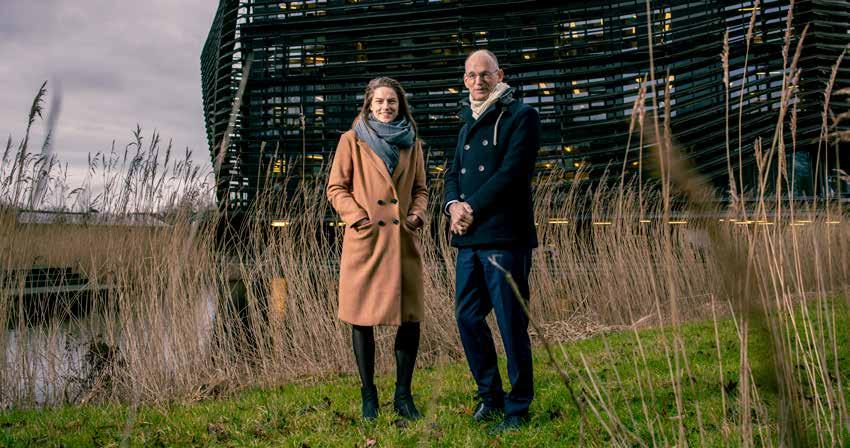
The understanding that healthy soil contributes to biodiversity and climate resilience is at the heart of Wetsus's mission. "You need phosphate. Without phosphate, you're finished. We have to recover 100 per cent, because it’s running out," stressed the director of the water institute. According to him, this is also the key to a new view of circular agriculture that strives for reuse and for recovery. But how do we deal with soil and water? "You can control microbiomes, the total of bacteria and fungi in a soil," he explains. "They can extract nitrogen from the air, making fertilisers unnecessary. That makes agriculture more sustainable and stronger."
More innovation needed
"It's all about the interaction between water and soil," Cees continues. "If rainwater is not retained, you have problems with your crops. You can have drought or too much water, but both are a risk." Wetsus is experimenting with systems that capture and use water more efficiently. In Sneek, for example, two hundred houses have been equipped with separate toilet discharge systems, allowing nutrients to be returned directly to the soil.
Swedish inspiration
Speaking of sanitary solutions, in April 2024 a Frisian delegation including Wetterskip Fryslân, Wetsus, Leeuwarden municipality and Circulair Friesland travelled to Helsingborg, Sweden. Here, a unique neighbourhood that currently has 1,100 residents and is planned to reach 2,500, has an innovative sanitation system. Instead of traditional sewerage, three waste streams are separated: toilet water (black), shower and washing water (grey), and kitchen and garden waste. These streams are processed locally into clean water, residual heat, and high-quality fertilisers - a circular miracle that saves 35 per cent water per person per day.
The trip inspired the think-tank 'Closing Nutrient Circuits'. The think-tank aims to make Friesland's agricultural and food system sustainable. By combining technology and science, the project endeavours to make circular agriculture practical. "It's about closing cycles in a way that is scalable," says Cees. "You have to find solutions that work for the farmer and the ecosystem." Loraine sees parallels with her work at GreenInclusive. "Whether it’s water or building materials, the objective is the same: ensuring that we achieve a future-proof region together, where we have sustainable and local production. Friesland can be a role model here for the rest of the Netherlands and Europe."
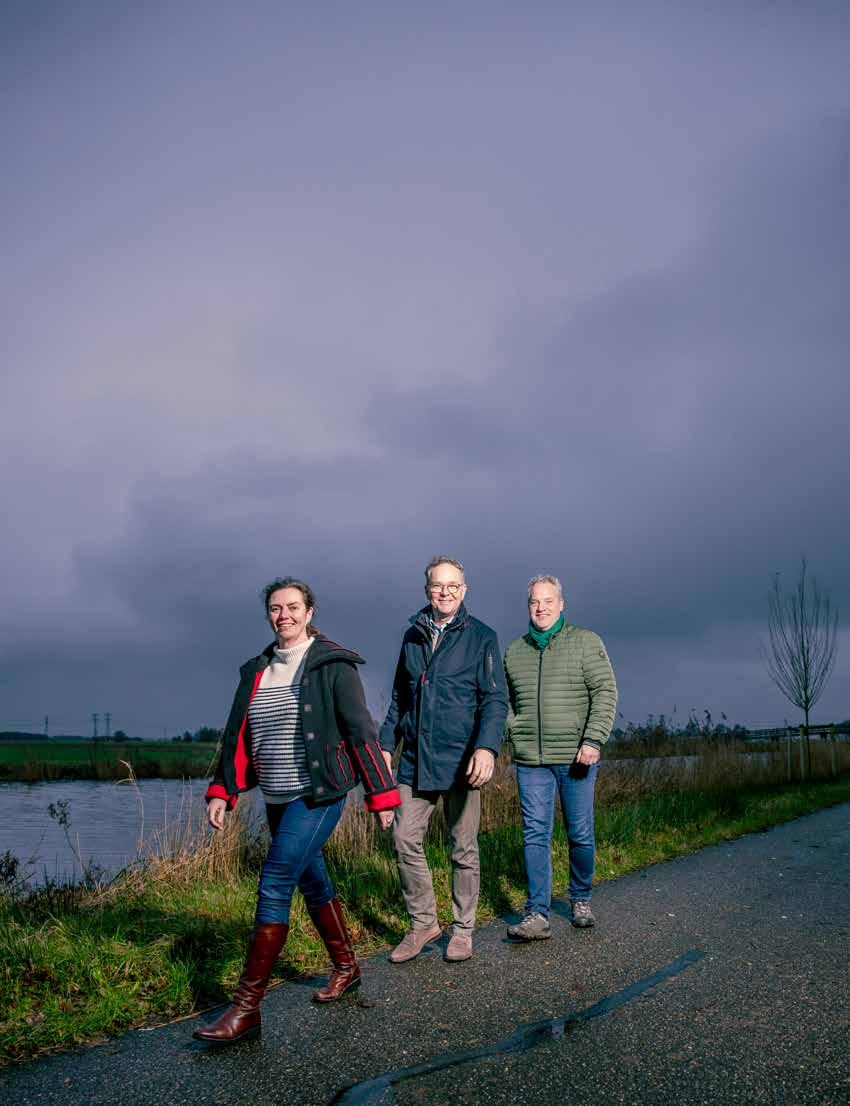
ANNEKE LUIJTEN-LUB, JOHN VERNOOIJ AND ALEX BONNEMA
When Circulair Friesland was founded in 2015, the main wish was to become an association of go-getters. To do more than just talk. Ten years on, Chairman John Vernooij and board members Alex Bonnema and Anneke Luijten-Lub look back on a decade of circular 'action'.
"When Queen Máxima asked if she could visit that was the ultimate confirmation that our approach works."
SEVEN COMPANIES, PROVINCIAL EXECUTIVE, AND MUNICIPALITY
BIG STEPS THANKS TO THE QUADRUPLE HELIX
For one, it was a strong desire to add something to Friesland. The other saw how more and more people were struggling with energy poverty and was determined to change that. John Vernooij and Alex Bonnema both noticed that many people were talking about sustainability and circularity around the year 2015, but only a few actually rolled up their sleeves. That would have to change, the pair of them thought. John was already director of waste processor Omrin at the time, Alex was managing director of housing association Elkien and is currently the chairman of the Caparis board.
"We knew that a number of companies in the region were already serious about sustainability and circularity," John reflects. "We decided to bring those companies together, ask them for a small investment and, more importantly, commit to circularity in Friesland in the coming years." Seven companies joined the pair, as did the provincial executive of Friesland and the municipality of Leeuwarden.
The activities of the assembled organisations and authorities soon attracted the attention of other Frisian institutions. When the Circulair Friesland Association was founded in 2016, its membership already included 25 companies, public bodies, and other organisations. Alex: "This is not an association you join to have drinks or acquire clients. You’re a member because you are intrinsically driven to make Friesland circular. Because you want to collaborate with like-minded companies, public bodies, and educational institutions. And because you are open to learning from others."
Learning from each other: those are words that thrill Anneke LuijtenLub. Anneke sits on the Executive Board of Van Hall Larenstein University of Applied Sciences and has been a board member of Circulair Friesland since the end of 2023. "A lot of knowledge is exchanged in the association. Crucial for a transition like this one. Because when you share knowledge, it grows. Especially if you do it in the quadruple helix - business, public bodies, education, and research." John goes on to say that this knowledge sharing often leads to ideas for new projects or innovations. "And that's how we get back from talking to doing."
‘You don't come here to have a drink’
QUEEN MÁXIMA VISIT
More than 180 organisations have now joined the association. What makes it so attractive to Frisian companies? "We’ve shown how well our region is doing right now. How many companies are already doing insane things on circularity and how many millions are being invested. We’ve boosted the region's pride and self-confidence," says John. Alex adds: "Frisians tend to think that everything they do is perfectly ordinary. That down-to-earthness is nice but it's okay to say you're proud sometimes." John again: "When you communicate your mission and prove that you are fully committed to it, you attract others. That creates support and clout."
The definitive example of that appeal was Queen Máxima's visit in the summer of 2024. "She was the one who asked if she could visit because she wanted to learn from us," beams Alex. "To me, that was the ultimate confirmation that what we do works." John nods. "Other regions’ interest in our approach is a similar confirmation to my way of thinking. That our concept proves to be scalable, so it works in Groningen, Utrecht, or the Rijk van Nijmegen, is one of the best achievements of the past decade in my book."
‘The
But Circulair Friesland's task is not finished just yet. Friesland is currently one of the European frontrunners in the circular economy. How do you make sure you maintain or even improve that position? "With perseverance, optimism, and humour," Anneke aptly sums up with a smile. She explains that 'transition thinking' is currently central to many training institutions in the north. "The students of today and tomorrow learn to ask questions - even if they are difficult - and make connections. That way of thinking will really accelerate the circular transition."
CONTINUE TO DEVELOP AND ENCOURAGE
When it comes to the future of the circular economy in Friesland, it shows how much the board members believe in the direction the region has taken. "The federal government has set a target of reducing CO2 emissions by 55 per cent by 2030: I hope we achieve that target before then," John states. The three even try out a thought experiment: will there come a time when Circulair Friesland is no longer needed to drive the circular transition? "I think we’ll continue to evolve," Anneke notes. "There will always be topics that require a regional approach." Alex, concludes "With the association, we are committed to a cause bigger than ourselves. We will continue to be committed. Because Friesland deserves it."

In 2025, we will host the National Conference on Circular Economy (NCCE). In this annual conference organised by the Ministry of Infrastructure and Water Management, companies, public bodies, inspirers, pioneers, and other interested parties discuss the opportunities and challenges of a circular economy. The NCCE takes place in a different region of the Netherlands every year. The fact that the conference is being held in Leeuwarden in 2025 is the proverbial icing on the cake of our work.
JOHAN KEUNING, MAX EISENBART AND CARLO SEGERS
With their fresh eyes and innovative ideas, students are indispensable to the circular transition. Friso Bouwgroep and vocational-education institute Firda couldn't agree more. The two Frisian organisations have been working together on a continuous exchange between education and professional practice for years.
30, 40, maybe 50: on any given day, anyone who walks past Friso Bouwgroep's offices and construction sites, will come across dozens of students. Trainees, graduates, or apprentices on an apprenticeship programme: Friso is happy to open its doors to them all. The students come from educational institutions across the Northern Netherlands, but it is fairly certain that there will be several Firda students among those young professionals. The Frisian vocational-education institute and the construction company have been loyal partners for years. And as both organisations focus on sustainability and circularity in their operations, they are deepening that partnership even further.
Cook, hairdresser, or IT professional "At Firda, we want to teach students a trade and show them how to practise that trade in a sustainable way," says Carlo Segers, member of the Executive Board. "Sustainability is now woven into all our courses. Whether you are being trained as a cook, hairdresser, IT professional, or a carpenter. Professional practice partners keep us informed of new developments so we can offer them to students. For example, in our workshop for the construction and infrastructure courses,
we have all types of circular and biobased building materials. So our students, the professionals of tomorrow, learn how to work with them now."
And that is essential, as Johan Keuning of Friso Bouwgroep knows. "The demand for circular and sustainable construction is increasing exponentially. Although our industry is bound by a host of legislation and regulations and, as a result, we cannot always innovate quite as quickly as we’d like, we always try to look at what we can do. We bring in as much knowledge on circular construction as possible. And we always make sure we fully involve students in our search for circular solutions. And of course we make grateful use of the expertise of other members of Circulair Friesland, and the cross-pollination that takes place via SPARK."
‘Companies are being challenged by the openmindedness and fresh perspectives of the students’
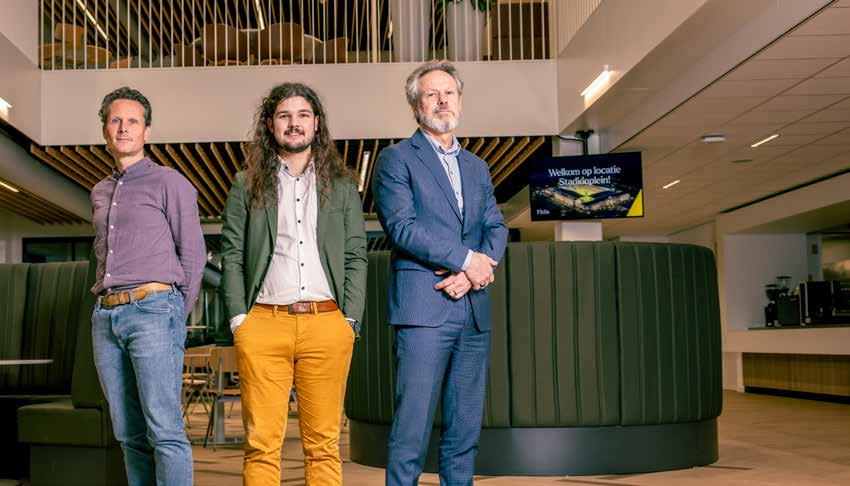
Johan is referring to SPARK the Movement. This shared programme of several levels of educational institutions and Circulair Friesland aims to ensure structural involvement of students in the transition to a circular economy. The programme regularly initiates projects in which students and companies explore an issue together. SPARK Programme Manager Max Eisenbart: "In a project like this, students learn skills they would never have acquired in a classroom, and students’ fresh perspectives and open-mindedness challenge companies to take a critical look at themselves." Max and Johan get talking about the 'Los met de lisdodde' (liberate the cattail) project that Friso Bouwgroep worked on with other builders. Students from Firda were also involved. The students mapped the possibilities of the cattail: what can you do with this plant? Johan: "Initially we thought of applications like sheet or insulation material, but the students came up with completely different solutions like nappies and perfume, for example. A great example of how such collaboration leads to interesting, unexpected solutions." "Sometimes a project doesn’t have the outcome you expected, but you end up with something else fantastic instead," Carlo responds. "And suddenly it turns out that a
material that may not be suitable for construction can be applied cleverly in the textile industry - or the other way around. In SPARK's projects, everyone looks beyond their own interests, creating room for such surprises."
Firda's director welcomes the focus on circularity at the educational institution. But, he reveals, there are grand ambitions. For example, the organisation plans to create metrics for circular principles, ways of thinking or ideas students take with them to an employer or further education after leaving Firda. "Right now, it is all still about raising awareness and nurturing our students with circular thinking. Ultimately, the aim is for them to take that knowledge into the field."
"In the meantime, we continue to move with developments in professional practice. There is a lot happening in sustainability in all sectors, but in construction in particular. I’m happy with the way Johan and his colleagues take our students along in their quest for circularity and of course I hope they will continue to do so." Johan nods affirmatively. "Of course we will. The more students learn about circularity now, the more the construction industry will benefit."
The Frisian circular transition
10
the past years…
... more than €1 billion was invested in the circular economy
... the number of Frisian companies or establishments engaged in the circular economy increased by 24 per cent
... 12.6 per cent more jobs were created in the circular economy
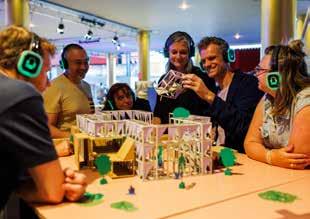
More than
20.000 Frisians are working in the circular transition.
1.5 billion
is the yield of developing circular materials.
That is 6.1 per cent of the Frisian economy!
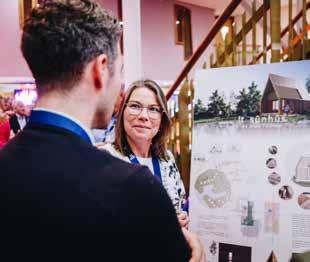
The Frisian authorities are participating in the Circulair Opdrachtgeven (Circular Commissioning) programme. The courses on circular purchasing already had
158 participants
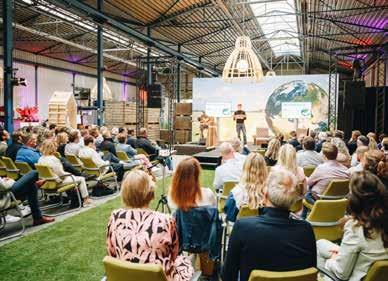
From preschool to PhD:
523 circular projects are being carried out
183 students attended the Sustainable Entrepreneurship master's programme at RUG Campus Fryslân.
90 per cent
110 entrepreneurs of Frisian companies see the circular economy as a positive development. (Research Campus Fryslân RUG, 2019).
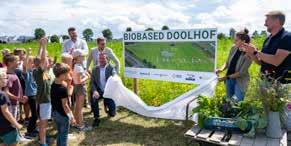
from the hospitality sector attended a training or course on sustainable and circular business.
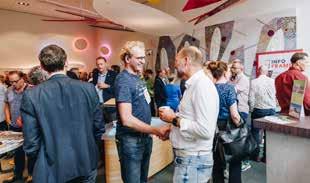
Thanks to the Fryske Vezelhennep deal, in Friesland
1.000 biobased homes were built
JAN SLAGMAN, MARTINE BRANDSMA AND FRANK VAN BERGEN
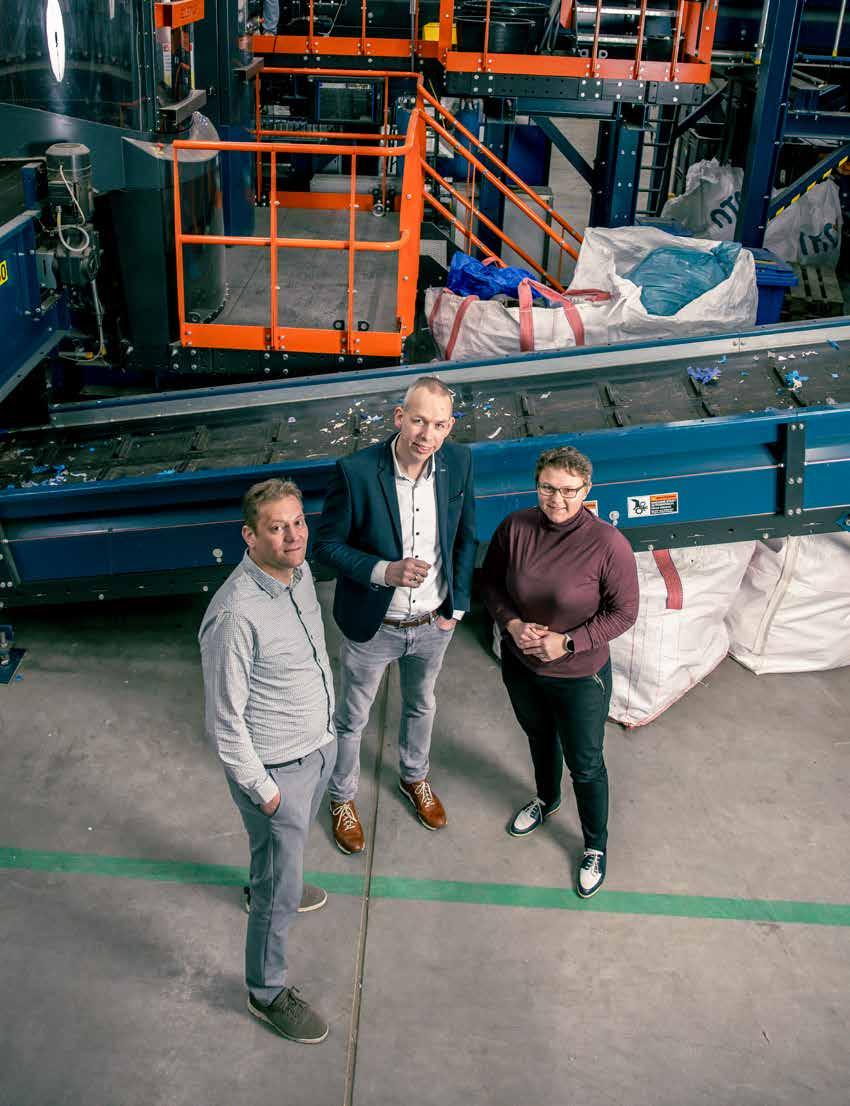
From dependence on fossil raw materials to the technical complexities of recycling, those who step into the world of circular plastic enter a complicated world where innovation and perseverance are imperative. Even so, there are pioneers in the northern ecosystem who are throwing themselves wholeheartedly into this challenge. Jan Slagman of Europrovyl, Martine Brandsma and Frank van Bergen of the National Circular Plastics Test Centre (NTCP) talk about how they are building a circular future.
Europrovyl is no stranger to the world of sustainable construction. The Leeuwarden-based company specialised in plastic window frames and had been at the forefront of developing circular solutions in recent years. "The challenge is not just in recycling but also in finding solutions that don’t require fossil resources," says Managing Director Jan Slagman. "We’re still too stuck in old habits. It’s a matter of perseverance and of creative thinking as well."
Not an option but a necessity
One of Europrovyl's most ground-breaking innovations was developing fully fossil-free PVC window frames: a world first. "It was a step we had to take," Jan thinks back. "The circular economy is no longer an option but a necessity." Europrovyl conducted raw material flow and transport analyses and mapped its own waste streams. "Those analyses revealed that we needed to make our production process more sustainable, but we also had to look at recycling and reducing waste. The solutions to these issues are mainly in the details: from recycling packaging materials to a new approach to the return flows of old window frames."
But how do you move from analysis to action? This is where the Nationaal Testcentrum Circulaire Plastics in Heerenveen, NTCP for short, comes in. This independent knowledge centre quickly became a major player in the circular plastics world. Twenty employees work full-time on questions like How do we get PET and all those other plastics from household waste streams recycled in a cost-effective way? How do we close the chains so that there is no loss of value? How do we accelerate innovations without them getting stuck in endless research reports? The answers to those questions and more will help companies around the world to make the move to circular plastics.
Martine Brandsma and Frank van Bergen founded the NTCP. They wanted to bring about change. "In the Netherlands, more than 400,000 tonnes of plastic are collected every year, but a good portion of this is barely recyclable with current techniques. That means it’s either used in
low-grade applications or incinerated," says Martine. "So, we need to look beyond the known solutions." The plastic recycling industry needed an independent centre of excellence, the two decided and that knowledge centre became the NTCP.
"The Netherlands often wants to solve a problem with one solution, but circular plastic is anything but simple," Frank explains. "There are so many different types of plastic, and the recycling methods are still far from optimal." Martine adds: "We often see that the technology is there but that implementation lags behind," she says. "So, the NTCP offers companies the opportunity to try out that technology on a large scale to make a real impact."
Although ambitions are high, the transition to a circular plastics industry remains a tough task. To name just one challenge: "Each type of plastic has a different structure and therefore requires different techniques for efficient recycling. That makes standardisation difficult," says Frank. Jan recognises: "The industry is still too bogged down by this complexity. It’s not just about technology, it is also about improving infrastructure to properly separate and process all these different materials."
Although Europrovyl and the NTCP are only small links in the immense global plastics chains, their impact reaches far and wide. With the steps they take, they initiate movement throughout the entire chain. Both organisations see collaboration and transparency as the key to progress. They are part of an ecosystem of parties that are involved in circular plastics. "The circular economy can only succeed if we work together as businesses, knowledge institutions, and public bodies," says Frank. "We are happy to make the knowledge we have accumulated at the NTCP available to the region and the rest of the world." Jan agrees and emphasises: "It's not just about our own interests but about the bigger picture."
Circular products, impressive places, and inspiring outings, all made circular in Friesland.
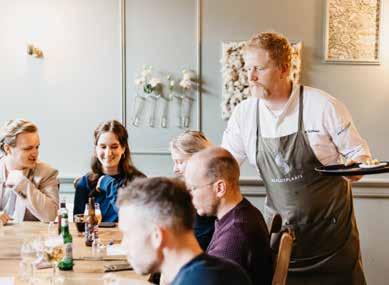
The centuries-old estate De Slotplaats borders the green forest of Bakkeveen. A place that stimulates your senses, where nature surprises you, and where you can enjoy healthy food that was grown or collected on site.
www.deslotplaatsbakkeveen.nl
A holiday at Camping Vrijhaven in Heeg is a green holiday. Entrepreneurs Jacob and Karin are taking dozens of sustainable and social steps and even developed a Big Green Agenda with ambitious sustainable goals. Have you booked your overnight stay yet?
www.campingvrijhaven.nl
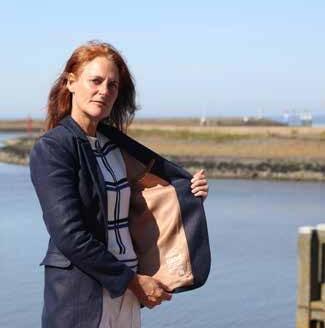
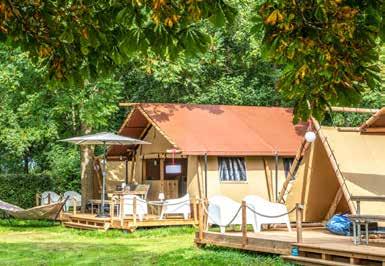
For the programme Wad van Waarde, House of Design brought flax cultivation back to the north. The sustainable fabrics made from the crop serve as the basis for a range of circular products. From a bread bag or cleaning cloth to a stylish jacket.
www.wadvanwaarde.nl
Electric motoring is nice but most charging stations aren't exactly great décor for your home. Fortunately, there’s Hey!Charging. The charging stations from the Frisian enterprise are stylish and developed sustainably.
www.heycharging.nl
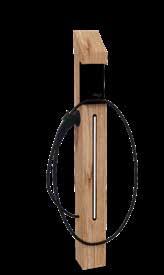

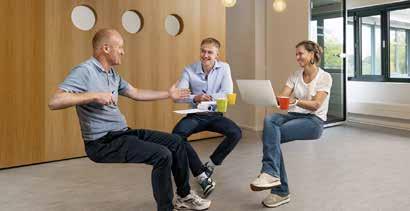
It's all there already: that’s the starting point of OPNIEUW! The circular office furnisher gives used furniture a new lease of life and makes new furniture from used materials. Train parts become a table, recycled PET bottles turn into a lampshade.
www.opnieuw.nl
Stavast Creation loves a green challenge. This printing specialist produces everything from business cards to cardboard exhibition stands in-house. Stavast Creation has 2 branches in Drachten and Leeuwarden. They deliberately choose sustainable materials and are always looking for new possibilities. They aim to phase out as many PVC-containing materials as possible and commit to recyclable solutions. That really stands out!
www.stavastcreatie.nl
An activity guaranteed to make you feel good: go beachcombing with the Waddenvereniging! The association organises regular clean-up activities on the Wadden Islands. Will you help keep the Wadden Sea clean?
www.ikjut.nl
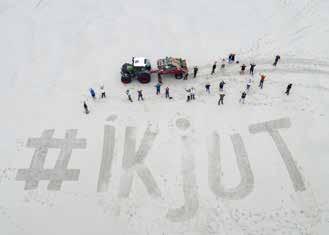
The circular transition is in full swing. What are the ambitions of these Frisian difference-makers for the next 10 years?
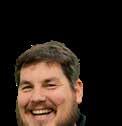

Arcadia
"Thanks to our mienskip strength, manufacturing power, and imagination, Friesland has everything it needs to expand its circular-leadership position. It is founded in our tradition of collaboration and decisiveness. Art projects like Bosk and Bouwurk prove that imagination connects people. If you want to involve a large, diverse group of people in the tasks of our time and inspire them to make sustainable changes, imagination is indispensable."

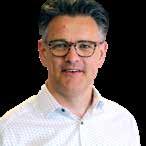
NHL Stenden
"In ten years' time, Friesland will be a circular region where education, business, and public bodies work together seamlessly. Where together we can ensure a well-functioning labour market. NHL Stenden trains people for the positions that are important in the region; the business community offers our students the prospect of good jobs. That is how we retain young talent in Friesland, while together we contribute to the sustainable transition."
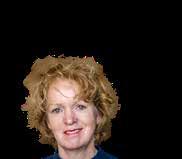
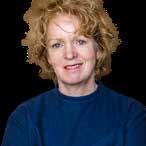
Studio Claudy Jongstra
"A healthy planet, strip farming, and more biodynamic farmers. That’s our ambition. Using wool that comes from a flock of Drenthe moorland sheep owned by It Fryske Gea, we continue to create wool-felted artworks with an urgent and hopeful message. We remain committed to bringing back biodiversity and regenerative agriculture. We do this together with educational institutions, biodynamic farmers, artisans, trainees, scientists, and chefs."

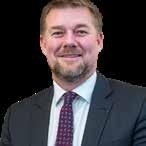
Provincial executive of Friesland
"More and more Frisians and Frisian companies contribute to a circular economy. By using and reusing raw materials and products for as long as possible and by being extremely innovative. If we continue to inspire each other, share knowledge, and create awareness, I expect Friesland's frontrunner role to grow. Biobased construction, sustainable purchasing, reusing water, or recycling plastic: they are all incredibly important to a clean, healthy, and happy Friesland!"
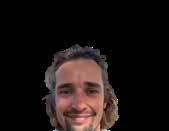
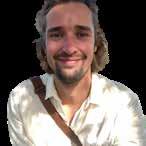
Arable farmer
"Cultivating and processing fibre flax in Friesland provides many opportunities. The crop can be processed into insulation material, but it can also be used in the clothing industry, for bio composite or paint. My ambition is that in ten years' time, cooperatives and processors throughout Friesland will be working together on crops for circular applications. From fuel to biobased paint, from building materials to dyes."
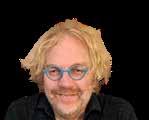
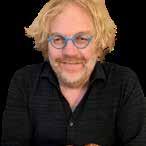
Regional Transition
"Friesland in 2035: a strong connection between city and countryside. A reciprocal system with more closed regional cycles. Farmers increasingly valuing regional residue streams. Energy cooperatives powering Friesland and facilitating shared mobility. In an ageing countryside in particular, circularity has proven to be an innovative opportunity. A foundation for a cooperative, resilient, and happy Friesland. And hey, I hear the godwit!"
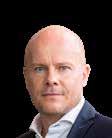
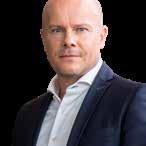
De Friesland
"In ten years’ time? Friesland will be a self-reliant mienskip where taking care of each other is normal. Smart technology supports self-reliance and co-reliance, personal and close-up. Can't find a solution in the community? Then we appeal to healthcare. Because it is sustainable and accessible, for everyone who really needs it."


Bouwgroep Dijkstra Draisma
"In ten years' time, the province of Friesland will have fully embraced biobased construction. The province is a frontrunner in producing, supplying, and processing biobased building materials. Friesland will show how to effectively reduce nitrogen, create new earning models for builders and farmers, and keep the planet liveable. Our CO2 negative house Smûk, made of wood and insulated with biobased material, shows that a great deal is possible even now."

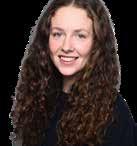
Ecoras
"In ten years' time, I see a plastics industry in the northern Netherlands where design-forrecycling increases the reusability of plastics and the economic value of recycled material improves. I expect that we will increasingly switch to biobased plastics and that the disposable culture will change."
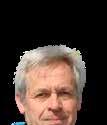
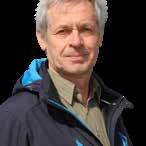
It Fryske Gea
"A plant takes what it needs from the soil, water, and the air. When it dies, it returns the minerals to its environment. That is how I see Friesland's future. Completely local, in a closed loop. A Friesland where grass cuttings are composted and spread out on the spot where they were cut. The nutrients go back into the soil, nature flourishes."

•Stichtingv/hdeBouwvereniging
• Stichting Thús Wonen
Heerenveen
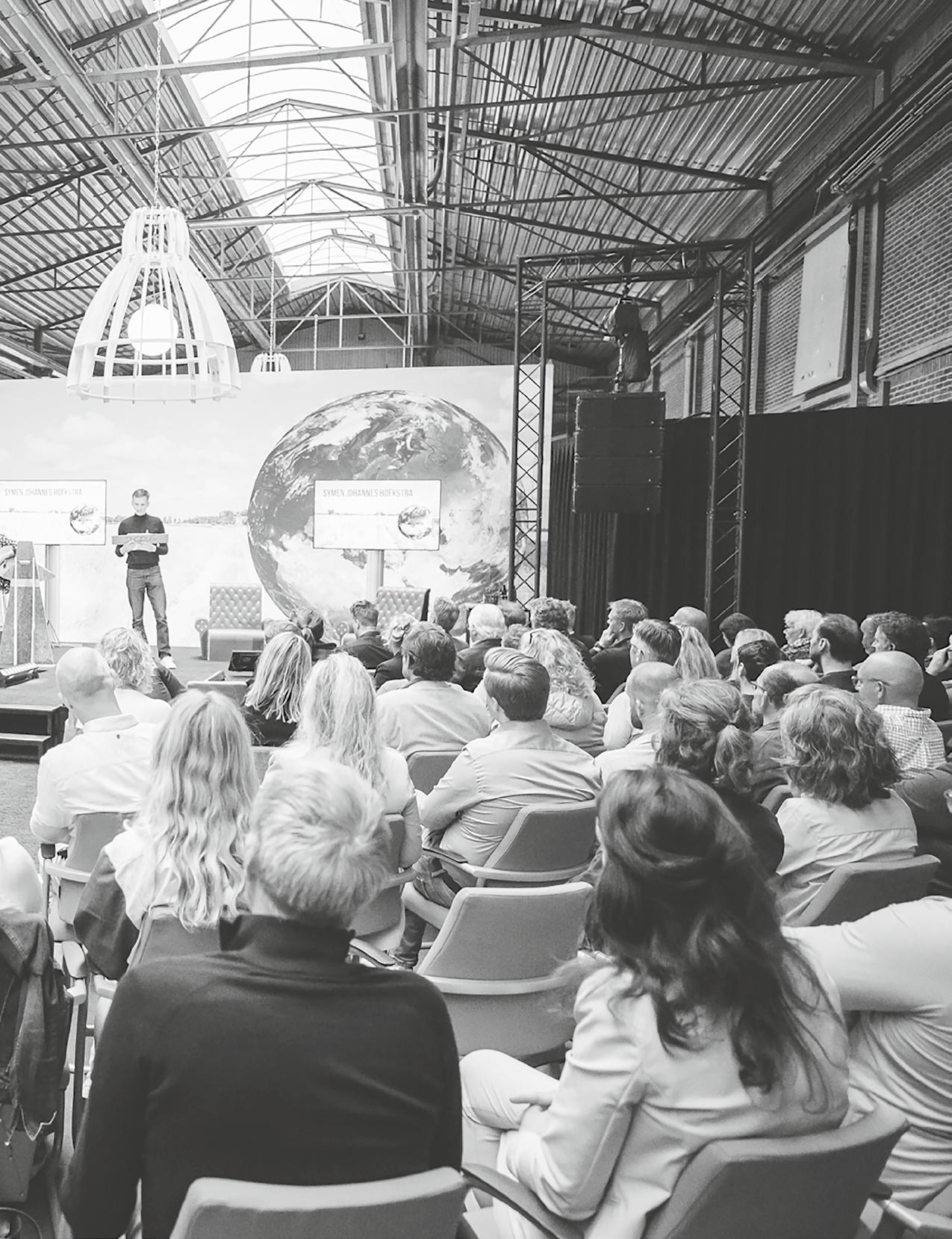
hcamsg
• M&H Hbtuo krewe
Gemeente De Fry s ke Marren •GemeenteHarlingen•GemeenteHeerenveen
BV • SOPREMA NLBV •SpaansenGroepB.V •Staatsbosbeheer
• Stadsschouwburg De Harmonie
•
• Gemeente Leeuwarden • Gemeente Noardeast-Fryslân •GemeenteOoststellingwerf
Bouw/VolkerWesselNoord•Rijkswaterstaat
Ver l ichting &EnergieFryslânUA.(OVEF)
Noord-Nederland
Nederland
• Noordwijzer b.v. •OGClean Fuels
• Stichting Watercampus • Stichting Wetsus • StudioArnoldHoman•StudioOAK• TakkenkampV astgoed V
• Rinagro B.V •RoelofsGroepBV . •Roem • R
• StavastCreatie •StichtingBiosintrum
• Overwijk KoffiesystemenNoord-NederlandB.V
• Oldenboom GroepB.V . •Omri
• amedeiM G r oep B.V. •Mulder Agro
• Skeon Pruu G
• bredrooN•DRNN deer t e B V
• kadorP -feihcrA ne FeicnivorP•gnigiteinrevataD r âlsy n • P isary de
• NedcamSolutions B .V • RWEN
drooNsiuhaideM
• fohretsoO namloH arfnI BV. . BwueinpO•V. . • Cöoitarep
• arGfiVBevisulcnIneerG•smeErednaVpeorGehcs
• gnithcitS nâlsyrFkreM murtnectseTlaanoitaNgnithcitS• iC
• loohcsegoHnednetSLHN
eD naaH netacovdA ne BnessiratoNV. . BliateRsJIs’gnoJeD•V.
• dnabrevsgnikrewnemaS ed nednalieneddaW aideMBJS•ruubmaCCS•
gni neevnereeH srednalnO•
• V.BsrueinegnINNALP
• atuaNsulP
.V.B
.v.b raarekezrevgroZdnalseirFeD• VN
• supmaC/GUR nâlsyrF .F.O.VnekiuKnavB&S•
.V.B
• Stichti n g Centre of E
• Gemeente O psterl and • G
snekkoF gdnorG VBdeo • esaeLdnalseirF•eitaredeFueiliMeseirF VB • suisirF CM • osirF peorgwuoB
• gnithcitS tcapeitavonnI nâlsyrF
• gnithcitS ngiseDfoesuoHgnithcitS•duowejnarOBF
onhceT gol ei
etneemeG nâlsyrF-tsewdúS leidaretskrejstyTetneemeG• • etneemeG ekeohdaaW • etneemeG frewgnilletstseW
acafretnI
srettaMlacoL
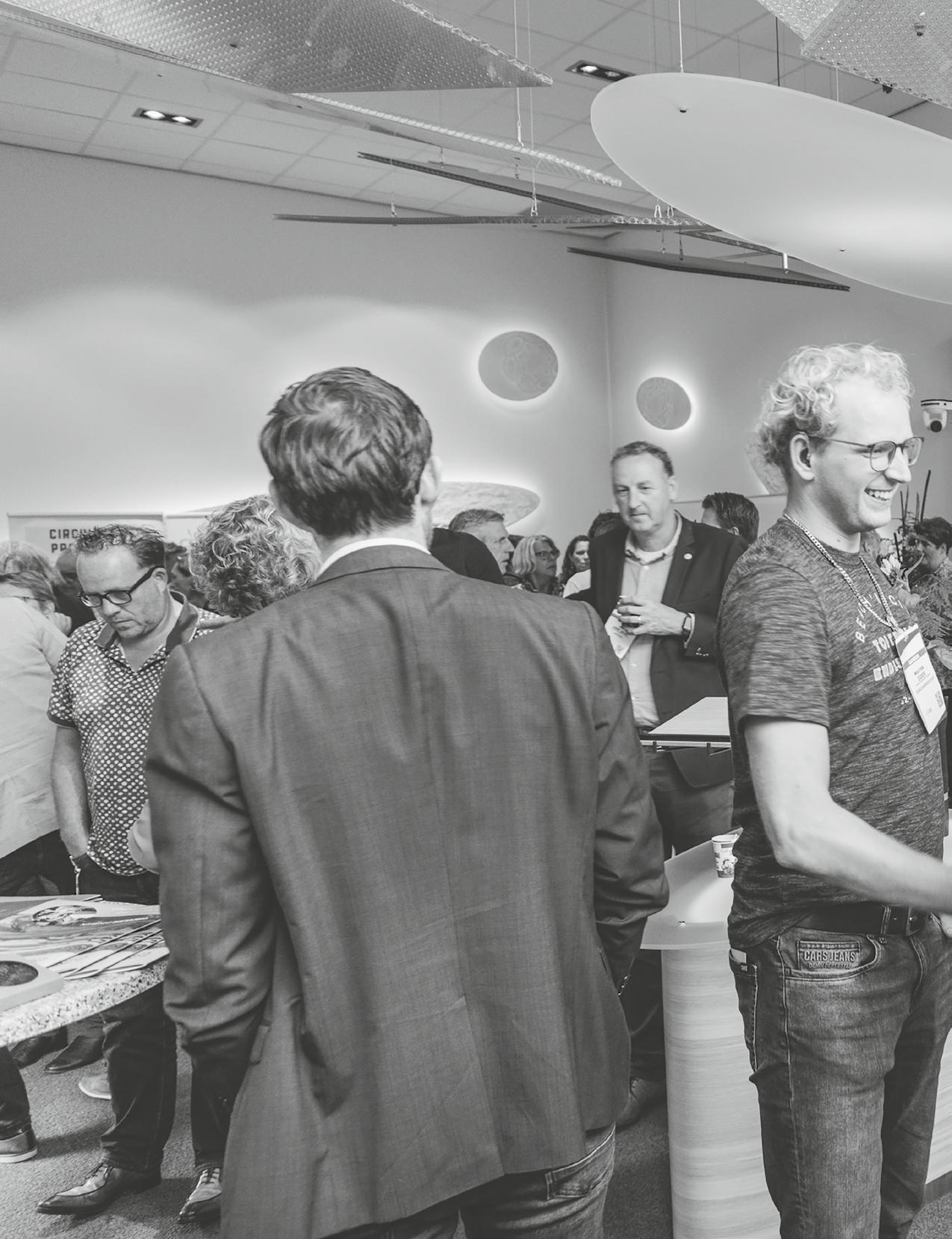
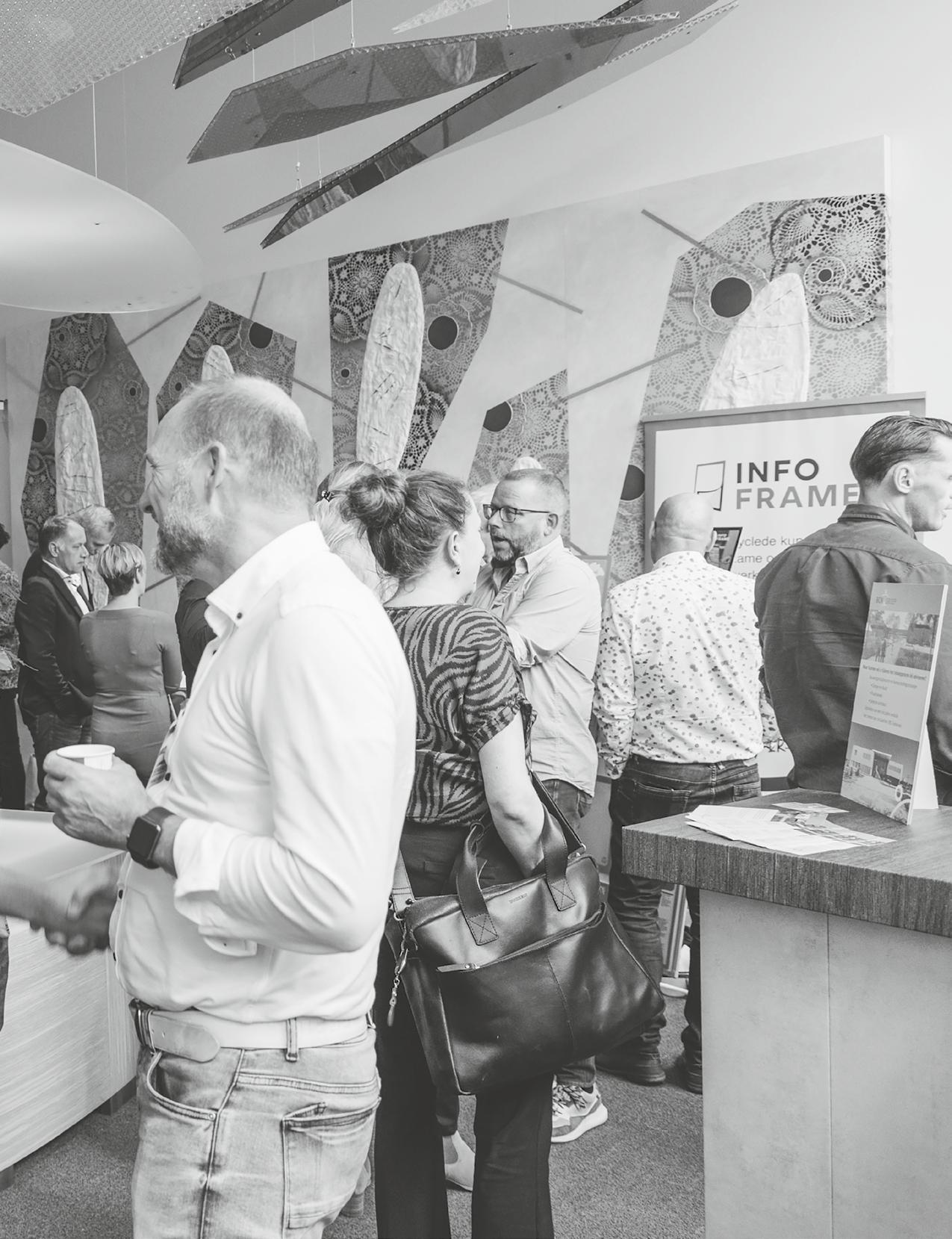
MADE Circulair in Fryslân 2025
A special publication of the provincial executive of Fryslân and Vereniging Circulair Friesland, with contributions from everyone inside and outside Fryslân who works on the circular economy.
Editors
Charlotte Strijbos, Evert Jan van Nijen, Femke Jongsma, Karina Pool, Maartje Visser, Nienke Turkstra, Radboud Droog, Ruth Wetting en Sander Bos.
Editor-in-chief
Maartje Visser (Bureau Binnendijks).
Cover illustration
Berber van den Brink.
Art and design
NEWR Strategie & Creatie.
Printing
This magazine was produced by VCF member Weissenbach, which uses a production method that involves sustainability and far-reaching reuse of materials. The magazine is printed on 100%-recycled Cocoon paper made of post-consumer waste without cutting down any new trees. The cover is made of Dutch roadside grass; a wonderful example of local reuse and circular thinking.
In putting together this magazine, the editors have made every effort to respect and make correct use of all the rights to photos, illustrations, and content. Should anything be missing or attributed incorrectly, please contact us for a correction.
For more information, please contact info@circulairfriesland.frl
